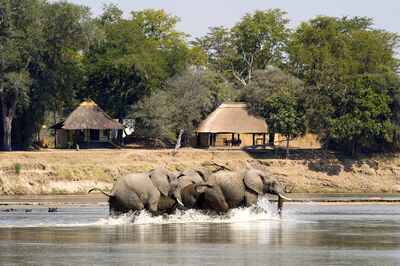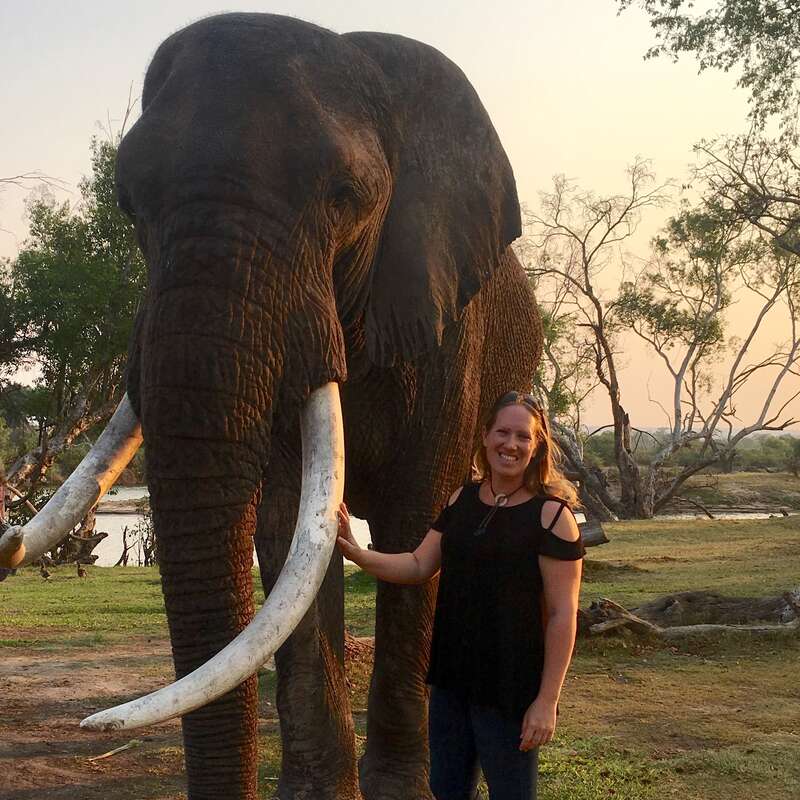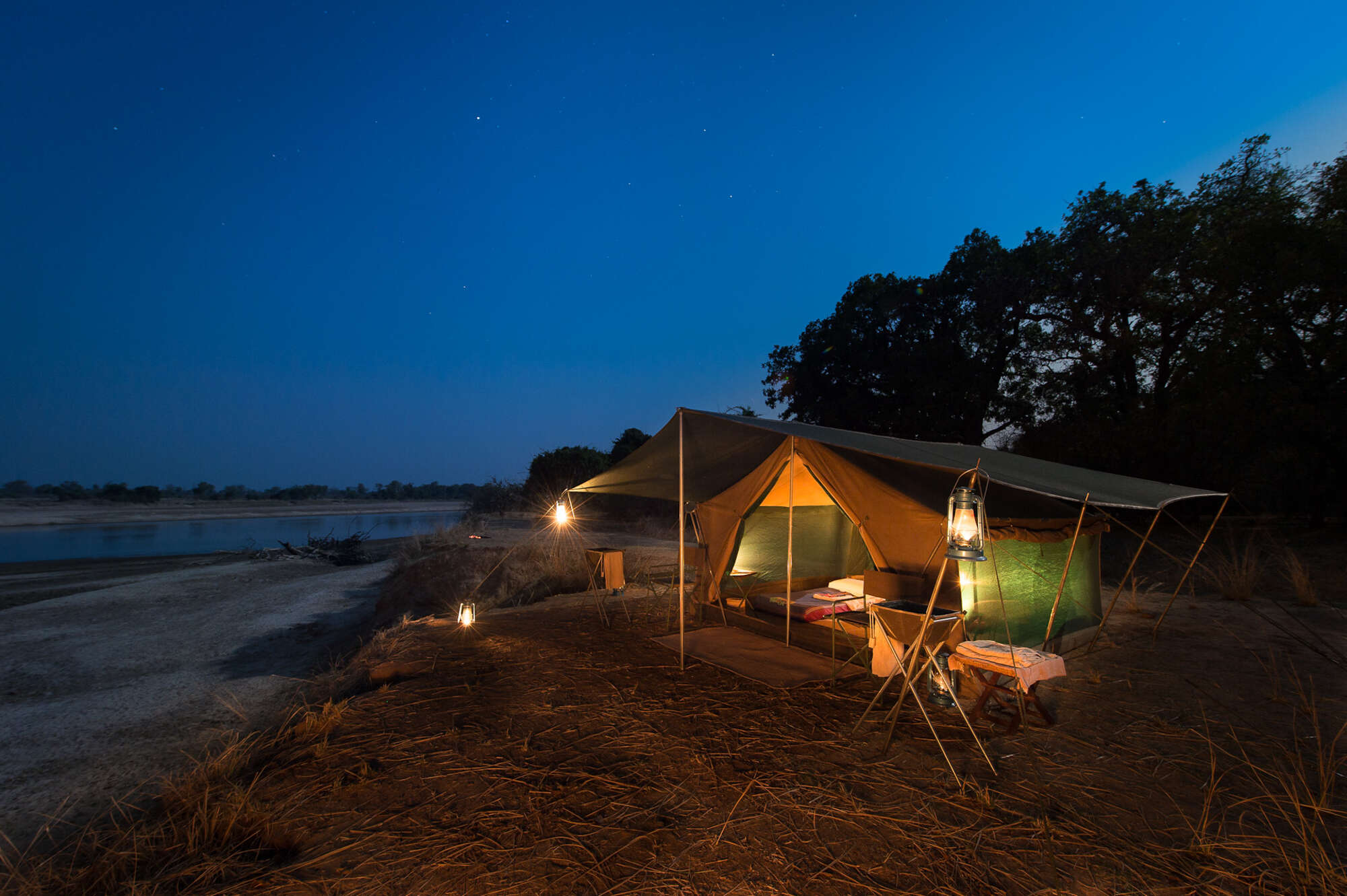About Nsefu
This laid-back camp, steeped in South Luangwa history, has quality guiding and dining in a beautiful riverside setting.
Nsefu was opened in 1951, the first camp in the South Luangwa and the brainchild of the renowned conservationist and guide, Norman Carr. Norman pioneered walking safaris here to benefit conservation and communities long before responsible tourism became a buzzword.
In the intervening years, the camp has preserved its history in its unique and unassuming charm. The bar and lounge have old black-and-white photos of Carr's safari days, and the six small rondavels, unique in the Valley, retain their original characteristics with the addition of small terraces that look out towards the Luangwa River.
Nsefu's dining room was gobbled up as the river changed course, so they now offer “nomadic dining” depending on the season – under the stars, under the shade of trees, or even a private dinner for two on top of a huge dormant termite mound – far more romantic than it sounds!
The camp's location, within the Nsefu Sector, features superb wildlife, and the camp itself provides some fantastic sightings in the dry season, with huge herds of buffalo and elephants meandering across the river. Pukus seem to be ever-present, quietly eating the crimson petals of the camp's mature sausage trees, and birds continually dip into the camp waterhole
Nsefu’s laid-back charm continues to entice guest back time and time again.
Our view
Nsefu is a simple, popular, slightly old-fashioned little bushcamp, and our travellers love staying here. It is both laid back and intimate, with some of the best guiding we have come across in the South Luangwa. Over the years we have visited Nsefu many times and always felt instantly welcome and at ease. We can recommend it without hesitation.
Accommodation
6 rondavels
Children
Best for 12+
Open
22 May–20 Nov; and 22 Jan–31 Mar
Activities

4WD Safari

Birdwatching

Boat trip

Cultural excursion

Guided walking safari

Night drive
Traveller reviews of Nsefu
207 real, un-edited reviews from Expert Africa's travellers.
Arrived 9 Jun 2025, 4 nights
"Nsefu review"
Overall rating: Excellent
Arrived 28 Feb 2025, 2 nights
"Nsefu review"
Overall rating: Excellent
Arrived 3 Nov 2024, 2 nights
"Nsefu review"
Overall rating: Poor
Arrived 4 Nov 2024, 4 nights
"Nsefu review"
Overall rating: Excellent
Arrived 24 Oct 2024, 3 nights
"Nsefu review"
Overall rating: Good
Arrived 19 Oct 2024, 3 nights
"Nsefu review"
Overall rating: Excellent
Arrived 22 Sep 2024, 2 nights
"Nsefu Camp stay"
Overall rating: Excellent
Arrived 18 Sep 2024, 4 nights
"Eighth visit to Nsefu"
Overall rating: Excellent
Arrived 16 Sep 2024, 1 nights
"Nsefu - understated brilliance"
Overall rating: Excellent
Arrived 11 Sep 2024, 3 nights
"Nsefu review"
Overall rating: Excellent
















Expert Africa's gallery
When we travel we take lots of photos ourselves to give you a real and un-edited view of the safaris. See our 39 pictures and 2 videos of Nsefu to get the candid view.
View gallerySafaris visiting Nsefu
Just ideas, we'll always tailor-make a trip for you
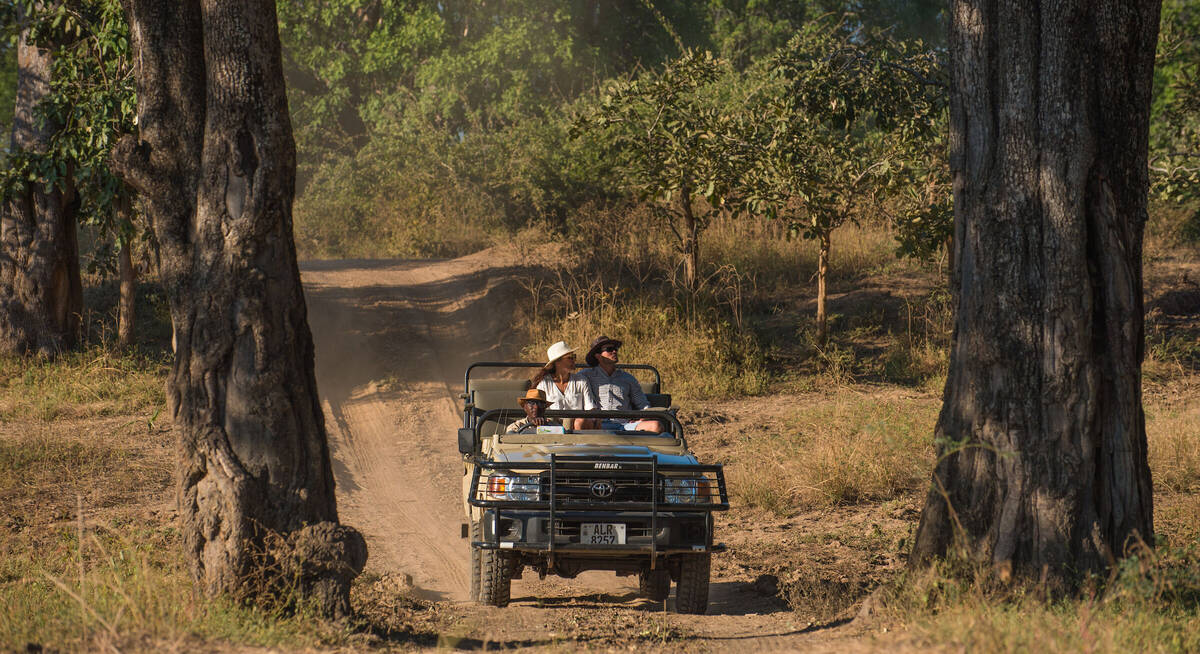
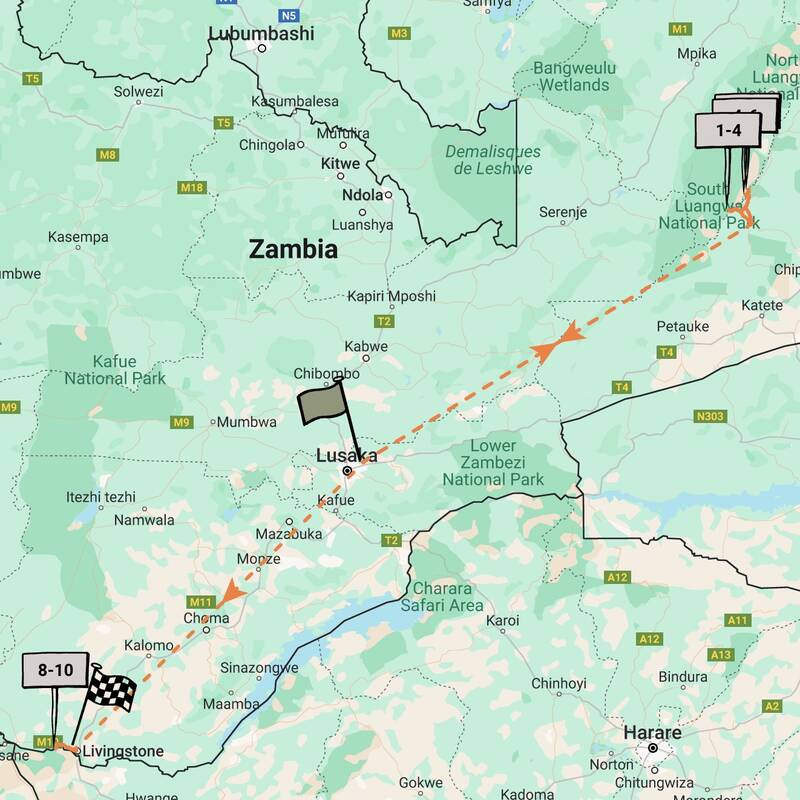
Hippo Safari
10 days • 4 locations • 1 country
LUSAKA AIRPORT TO LIVINGSTONE AIRPORT
Combining excellent game with aspects of remoter safari in South Luangwa, as well as the cultural delights of Livingstone, this trip also makes use of long-stay discounts, making it an excellent-value and well-rounded adventure.
Visiting South Luangwa, Livingstone
US$7,360 - US$8,780 per person
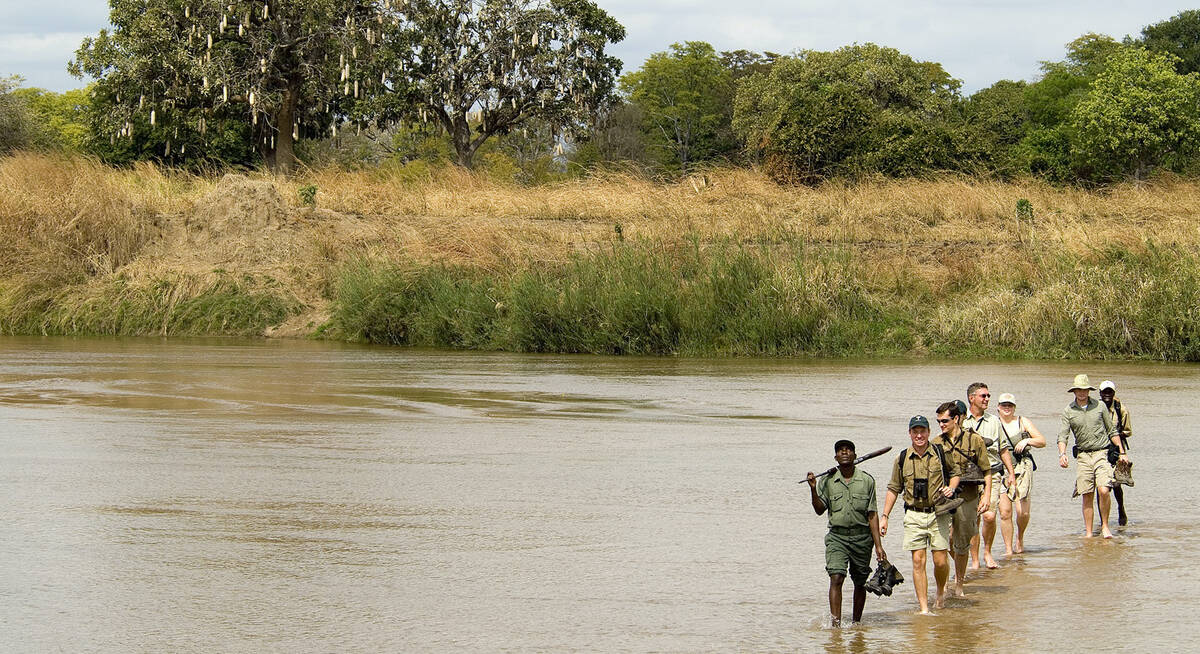
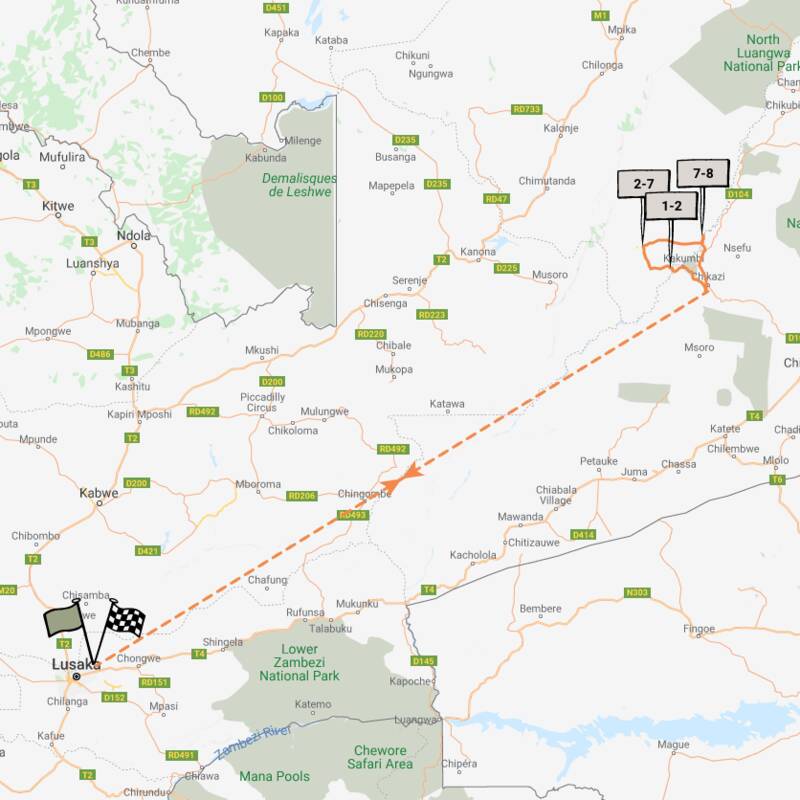
Robin Pope Walking Safari
7 days • 3 locations • 1 country
LUSAKA AIRPORT TO LUSAKA AIRPORT
The definitive, original mobile walking safari; explore the remote north of the South Luangwa on foot while staying in a simple mobile camp that moves with the group.
Visiting South Luangwa
US$8,500 - US$8,500 per person
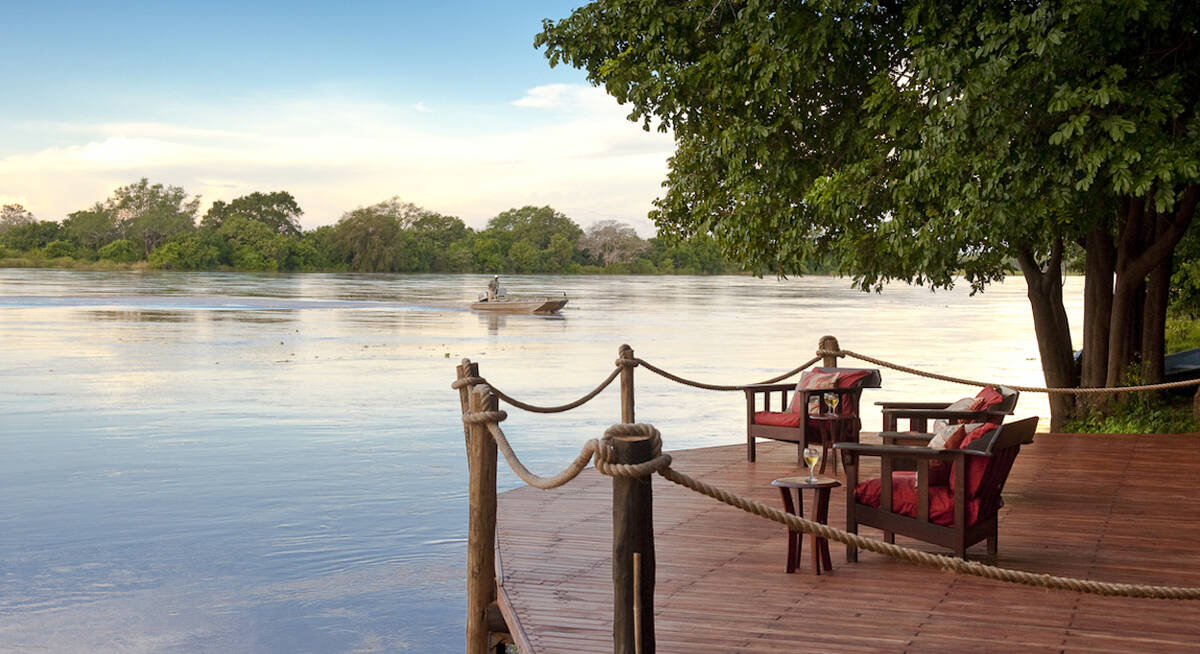
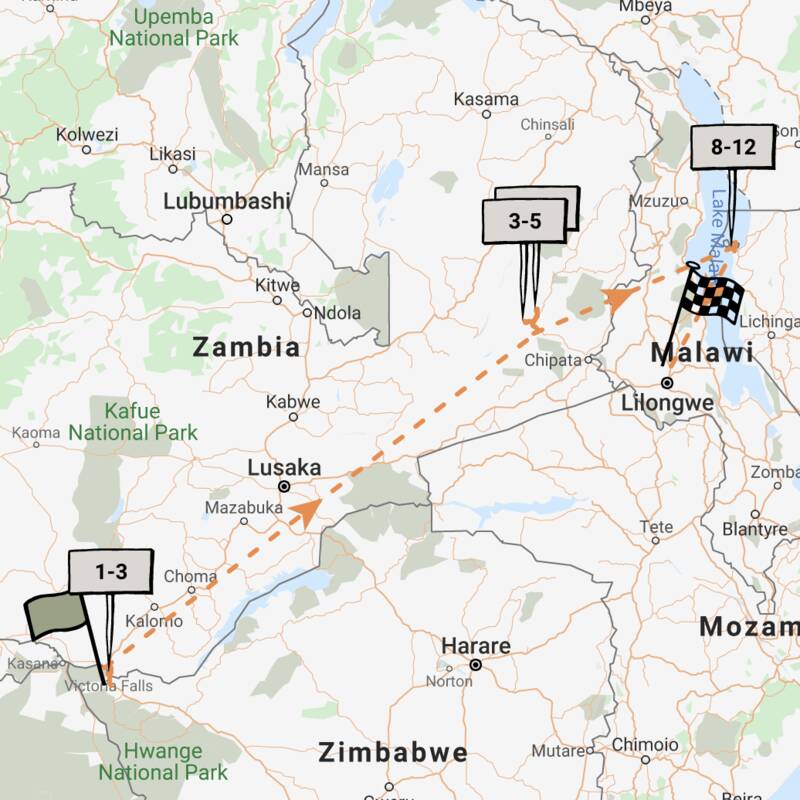
Hyena Safari
11 days • 4 locations • 2 country
VICTORIA FALLS AIRPORT TO LILONGWE AIRPORT
Mix relaxation and adventure on a safari combining the South Luangwa with Victoria Falls and the beaches of Lake Malawi. These three locations are among the most iconic in southern Africa.
Visiting Livingstone, South Luangwa and 1 other area
US$9,490 - US$11,910 per person
Nsefu: Our full report
On a wide bend of the Luangwa River, Nsefu Camp lies in the remote and game-rich Nsefu Sector of the South Luangwa.
The national park's oldest camp, it was originally built in the 1950s, and retains a reputation as a high-quality camp with a strong focus on guiding. It is run by Robin Pope Safaris, and lies a meandering few hours' game drive from the main RPS base at Nkwali.
Nsefu Camp was built in 1951 by Norman Carr, the great pioneer of photographic and walking safaris in the Luangwa Valley, and was based around raised brick rondavels with a few steps up to the door. It moved to its current site in 1953. When one of the Expert Africa team first visited Nsefu in 1995, it was run by a company called Wilderness Trails (who no longer exist), and it wasn't in a great state of repair. Shortly after that, in 1998, it was taken over and completely redesigned and refurbished by Robin Pope Safaris.
Nsefu Camp is sufficiently important historically that when it was being rebuilt and refurbished in 1998, the authorities insisted on keeping the original rondavels in their original locations. This does mean that, by modern safari standards, the rooms at Nsefu are quite a bit smaller than other camps and lodges in the park, and the rondavels are quite close together, but it also creates an intimate and historic feel to the camp, and we feel that these flaws can easily be forgiven.
There are six of these brick-and-stone thatched rondavels, each with a shady veranda at the front and a couple of directors' chairs. The rooms are small, and simply furnished, with minimal furniture, painted stone floors, whitewashed walls and pale fabric on the beds. Each bed has an 'evening breeze' unit', a very gentle and quiet air conditioning that operates within the mosquito net covering each bed. These were much appreciated during the heat of a previous visit in October.
The listed status of the rondavels led to their current innovative design, with a partly-open en-suite bathroom at the back of each, separated from the bedroom by a curtain and a couple of steps down. Here, you'll find a flush toilet, washbasin and large walk-in shower, with constant hot water provided by a log burner. Toiletries and bathrobes are supplied and there are shelves and hanging space for your clothes.
The open-sided communal area, or chitenge, at Nsefu sits beside a huge termite mound and commands a spectacular view of the Luangwa River, where the sun rises upstream and sets downstream. It houses the simple bar and seating area and is a great spot to watch wildlife coming to drink from the river. The rough brick floor, old black-and-white pictures, small refernce bookshelf and simple but comfortable furniture have a rustic, old-school charm that is in keeping with a remote safari camp steeped in history. Everything is understated and modest in style.
Nsefu's small, reed hide, located just to the side of camp next to the communal area overlooks a man-made lagoon where we spent a very enjoyable afternoon with a cold drink watching golden weavers, bushbuck, families of warthog, waterbuck and elephant coming down for a drink. No need to leave the camp for some quality game viewing and some great pictures!
At the opposite end of the camp is a thatched, open-sided dining room where lunch and dinner are usually served. However, when the weather is good, meals are often enjoyed under a shady tree or beneath the stars.
Nsefu offers a choice of activities: either walking safaris or day and night game drives. Typically there are two activities per day, each lasting around 3–4 hours and led by their excellent guides. We were treated to multiple leopard sightings during the day, and were able to witness a hippo charging a couple of lionesses as he came out of the river for his night-time grazing.
Walking safaris are a staple at Nsefu, always accompanied by an armed game ranger as well as a fully qualified guide. Exclusive to Nsefu is the 'sunrise safari', when guests leave camp at about 5.00am in order to be in the bush at sunrise. Your guide will cook you a full English breakfast over a fire, while you enjoy the sunrise with a mug of tea or coffee. The morning game drive then continues after breakfast. Guests at Nsefu can also book in advance to venture out for a night or two on a bushcamp trip.
During the 'emerald' season, when the Luangwa River is in flood, Nsefu opens for a few weeks of ‘River Journeys’ in March. At this time of year, the landscape around Nsefu is transformed, and land-based activities are curtailed; instead, the camp offers boating safaris, affording visitors a very different perspective of the South Luangwa.
Nsefu combines naturally with its sister camps, Nkwali Camp and Tena Tena, as well as sometimes being part of the itinerary for RPS walking mobiles. It's also a very natural complement to trips to Kawaza Village – which was originally set up with the help of Robin Pope Safaris.
For families and small groups, Robin Pope Safaris also run Robin's House and the Luangwa Safari House – two 'houses', with two and four bedrooms respectively. Close to Nkwali, each comes with its own chef, expert guide and private safari vehicle, and both are ideal for families or small groups travelling together.
Activities
4WD Safari
Birdwatching
Boat trip
Cultural excursion
Guided walking safari
Night drive
Families & children
- Attitude towards children
- Nsefu is happy to accommodate children at the camp.
- Property’s age restrictions
- Children of 12 years and over are welcome at Nsefu
- Special activities & services
- None
- Equipment
- None
- Generally recommended for children
- Nsefu is a remote bushcamp with quite an adult atmosphere so is suited only to older children with a high degree of maturity. Families with children may prefer to stay at Luangwa Safari House or Robin's House, which both offer more privacy and flexibility for family groups.
- Notes
- Children will need to be constantly supervised by their parents as Nsefu is not fenced in, and game wanders freely throughout.
Food & drink
- Usual board basis
- Full Board & Activities
- Food quality
- Nsefu has always offered high-quality food, a standard that was maintained during our last visit in July 2024.
Breakfast is usually set around the campfire, overlooking the Luangwa River, at around 5.30–6.00am before heading out on the morning activity. Hot porridge, cereal, fruit, and toast cooked on the fire are available, alongside tea, coffee and juice.
A buffet brunch is served in the dining area or under a shady tree on the lawns at around midday, when everyone returns from their morning activity. Tasty spinach quiche with coconut rice, some cold cuts of meat, along with a variety of fresh salads and warm, homemade loaves of bread. There’s always a tempting dessert – we enjoyed lemon curd cheesecake – to set you up for a siesta.
Save space for afternoon tea at 3.30pm though…Nsefu's chocolate-chip biscuits are worth it!
After drinks at the bar a set, 3 course dinner is usually served at 8.00pm. Perhaps a tasty tomato, mozzarella and aubergine salad, followed by garlic chicken served with grilled sweetcorn and pumpkin, and rounded off with a delicious bread-and-butter pudding. Tasty Curry Nights under the stars are a culinary highlight here! - Dining style
- Group Meals
- Dining locations
- Indoor and Outdoor Dining
- Further dining info, including room service
- No
- Drinks included
- Soft drinks, house wine and local spirits are included at Nsefu, but note that fine wines, champagne and imported spirits and liqueurs are charged as extras.
Our travellers’ wildlife sightings from Nsefu
Since mid-2018, many of our travellers who stayed at Nsefu have kindly recorded their wildlife sightings and shared them with us. The results are below. Click an animal to see more, and here to see more on our methodology.

100% success

100% success

100% success

96% success

90% success

89% success

88% success

87% success

66% success

32% success

20% success

9% success

8% success

2% success

0% success
Getting there
- Location
- South Luangwa National Park, Zambia
- Ideal length of stay
- We usually suggest a minimum stay at Nsefu of three nights, although many repeat visitors choose to stay longer. In the dry season, from June to October, we suggest 2–3 nights at Nsefu's sister camp, Nkwali , before heading north to Nsefu and/or Tena Tena for a further 2–4 nights.
- Directions
- It’s approximately a one-hour flight from Lusaka to Mfuwe Airport, followed by an approximate one- to two-hour road transfer to camp. Transfers from the sister camp, Nkwali, generally take the form of a game drive, taking 2–4 hours.
- Accessible by
- Fly-and-Transfer
Special interests
- Solo safaris
- As a high-quality and intimate bushcamp, Nsefu’s exclusive feel and friendly professional team make everyone feel at home. This social atmosphere and a lack of single supplement make this a great choice for solo travel in Zambia.
- See ideas for Solo safaris in Zambia
- Birdwatching safaris
- Beside the river, with bush, open plains and salt pans nearby, Nsefu is a great location for birdwatching in Zambia. Knowledgeable guides, flocks of crowned cranes in the dry season, and yellow-billed storks during the rains are a bonus.
- See ideas for Birdwatching safaris in Zambia
- Walking safaris
- The area surrounding Nsefu is open and flat with excellent game and varied vegetation, which makes it a great base for walking safaris in Zambia. Keen walkers might opt to sleep under the stars at a Robin Pope Safaris bushcamp.
- See ideas for Walking safaris in Zambia
- Wildlife safaris
- On a wide bend of the Luangwa River, where elephants regularly cross, Nsefu is in an area with a high density of game and birdlife – but relatively few visitors. This, along with top-notch guides, results in excellent Zambian wildlife safaris.
- See ideas for Wildlife safaris in Zambia
Sustainability

Sponsoring anti-poaching activities
Steeped in history, the six rondavels at Nsefu Camp border the South Luangwa National Park, thus benefiting from views of extensive wildlife. Lions and leopards, antelopes or zebras, all sauntering the valleys in search of fresh water can be spotted from the comfort of guests’ armchairs. However, just like many other wildlife reserves, the South Luangwa National Park was not exempted from the cruelty of poaching activities.
Luckily, as part of Robin Pope Safaris, Nsefu Camp is contributing financially to Conservation South Luangwa (CSL) to help protect South Luangwa's wildlife. As the only body in South Luangwa equipped and skilled to treat and rehabilitate snared and other wounded animals, CSL has saved elephants, lion, hyena, giraffe, wild dog, leopard and many other species.
CSL currently employs 65 trained scouts who can spend up to 20 days in the field conducting anti-poaching patrols to track down and apprehend wildlife perpetrators.
Another aim of the program is to mitigate the Human-Elephant Conflict in the area. The success of CSL’s efforts is testified through the construction of elephant proof granaries and the erection of chilli fences to protect villagers' crops. In an attempt to educate people in local communities, CSL has been advocating for the advantages of growing alternative crops to maize and vegetables which cannot be consumed by animals such as chilli. Fortunately, local people are becoming receptive to the idea and chilli is now even being sold on to Rivonia Farms in Lusaka which produces chilli sauce products, thus improving local incomes and encouraging people to start their own micro-businesses.
See more great sustainability projects in Zambia
Communications
- Power supply notes
- The camp is run on solar power, with a back-up generator for cloudy days. As well as plugs in the rooms for charging, there is a camera-battery charging station in Nsefu's main area.
- Communications
- Nsefu is in radio contact with its sister camp, Nkwali, which has a landline phone as well as internet. There is usually no cellphone reception at Nsefu.
- TV & radio
- Nsefu has no televisions or radios.
- Water supply
- Borehole
- Water supply notes
- The showers and handbasins are plumbed in, and each chalet has a flushing toilet. Tap water from the borehole is safe for drinking, but bottled water is provided at the camp free of charge.
Health & safety
- Malarial protection recommended
- Yes
- Medical care
- There is a doctor based at a lodge in the Mfuwe area, about an hour’s drive from Nsefu. First-aid kits are provided in the camp and in the vehicles, and all the guides are trained in first aid. Nsefu has links to a flying-doctors service for serious emergencies.
- Dangerous animals
- High Risk
- Security measures
- Guests are escorted between their rooms and the main areas at night – either by a guide or by one of the camp's watchmen. There is a digital safe in each room to lock away valuables.
- Fire safety
- Nsefu has fire extinguishers in the main areas and fire buckets at each room.
Useful info
- Disabled access
- On Request
- Laundry facilities
- A complimentary laundry service is included, but this does not include ladies’ underwear; soap for this is provided in the rooms. Note that clothes are hand washed and ironed.
- Money
- No exchange facilities are provided.
- Accepted payment on location
- Nsefu accepts cash payment for any extras in UK pounds, US dollars, euros and Zambian kwacha. Visa cards are accepted at Nkwali, with a charge of 3.5%, although this is subject to change. They are not able to accept travellers' cheques.
Plan and book your trip with Expert Africa
All of our trips are tailor-made, so we'll always adapt them to suit you. Talk to an Expert and let us plan and arrange your perfect trip.

Talk to an Expert
Call or email us now! We’ll match you with the Specialist in our team who is best suited to help you. Then together we can start planning your trip.

Set up your itinerary
Based on our experience and your ideas, your specialist will create a detailed, costed itinerary. We’ll refine it together, until we have a trip that you’re perfectly happy with.

Prepare for your trip
The same Specialist will make the seamless arrangements for your trip, send you detailed travel documents, and be available to answer any questions before you depart.

Travel with peace of mind
After you set off, you’ll be cared for by our partners in Africa, most of whom have worked with Expert Africa for decades. And if you ever need us urgently, we’re available 24/7.

When you return
We love to learn about your trip, and so will always be grateful if you’ve the time to give feedback to your Specialist when you return.
Nsefu's location
Look closer at the environment and surroundings of Nsefu.
Excursions from Nsefu
Optional extra day-trips and excursions possible whilst you're staying at Nsefu. Talk to us: these are usually best arranged before you go.

Kawaza Village Visit
Two to three hours
Just outside Zambia's South Luangwa National Park lies a normal, working rural African village which is open and welcoming to visitors to the Luangwa valley. There is nothing artificial or contrived about Kawaza Village, and it offers a rare opportunity to experience and appreciate Kunda culture, and meet local Zambians.
More about Kawaza Village Visit
Tribal Textiles Tour
One - two hours
Visit the Tribal Textiles workshop, where hand-painted textiles are produced by more than a hundred local people. The workshop is close to Mfuwe Airport, so is ideally placed for a stop en route to/from the South Luangwa. With products ranging from cushion covers to bags and T-shirts, it's a great place for souvenir shopping while at the same time supporting the local community.
More about Tribal Textiles TourOther lodges in South Luangwa National Park
Alternative places to stay in this same area.
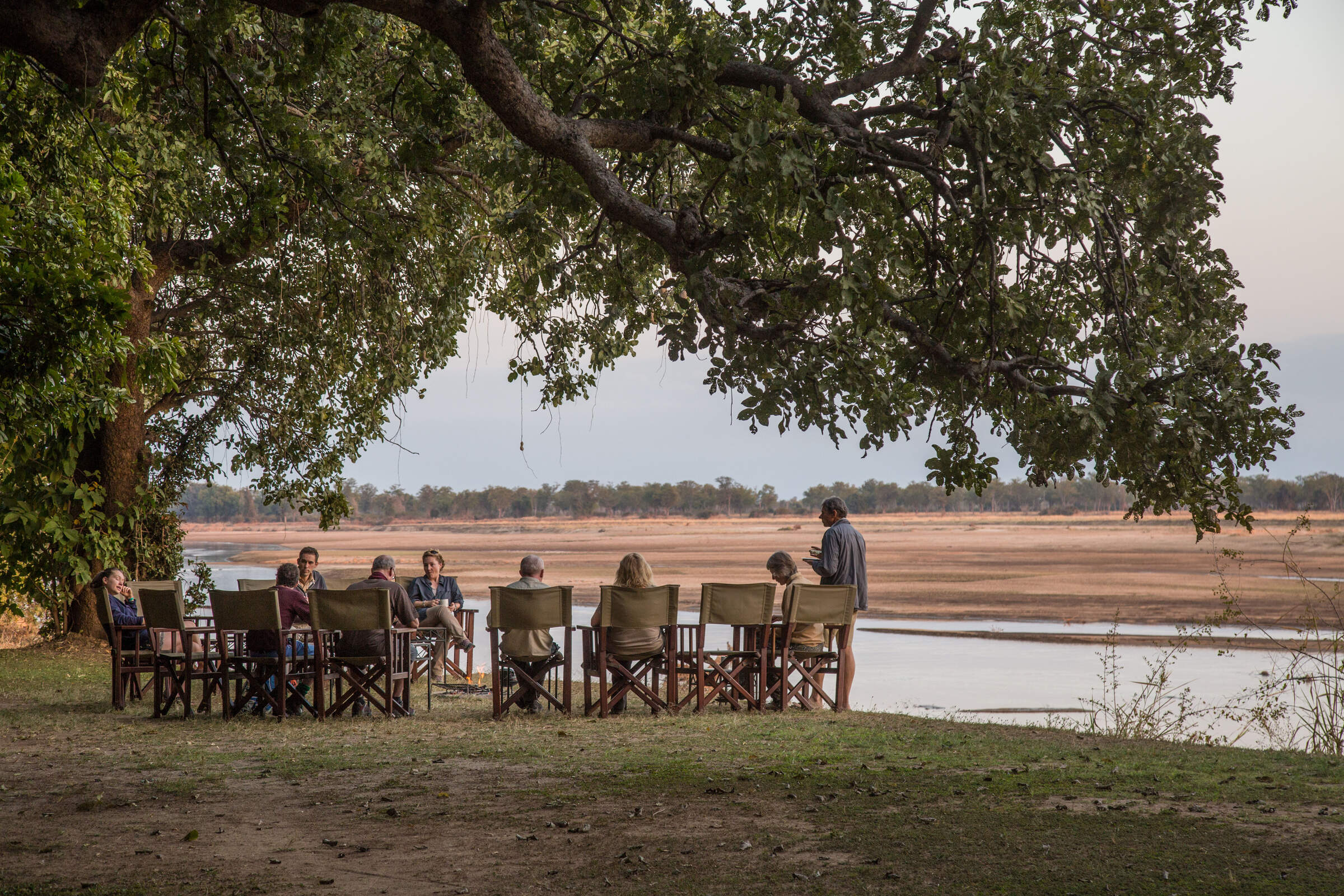
Tafika
One of the best camps in Zambia, Tafika is naturally built, combining excellent service and food with top guiding skills for a superb wildlife experience.
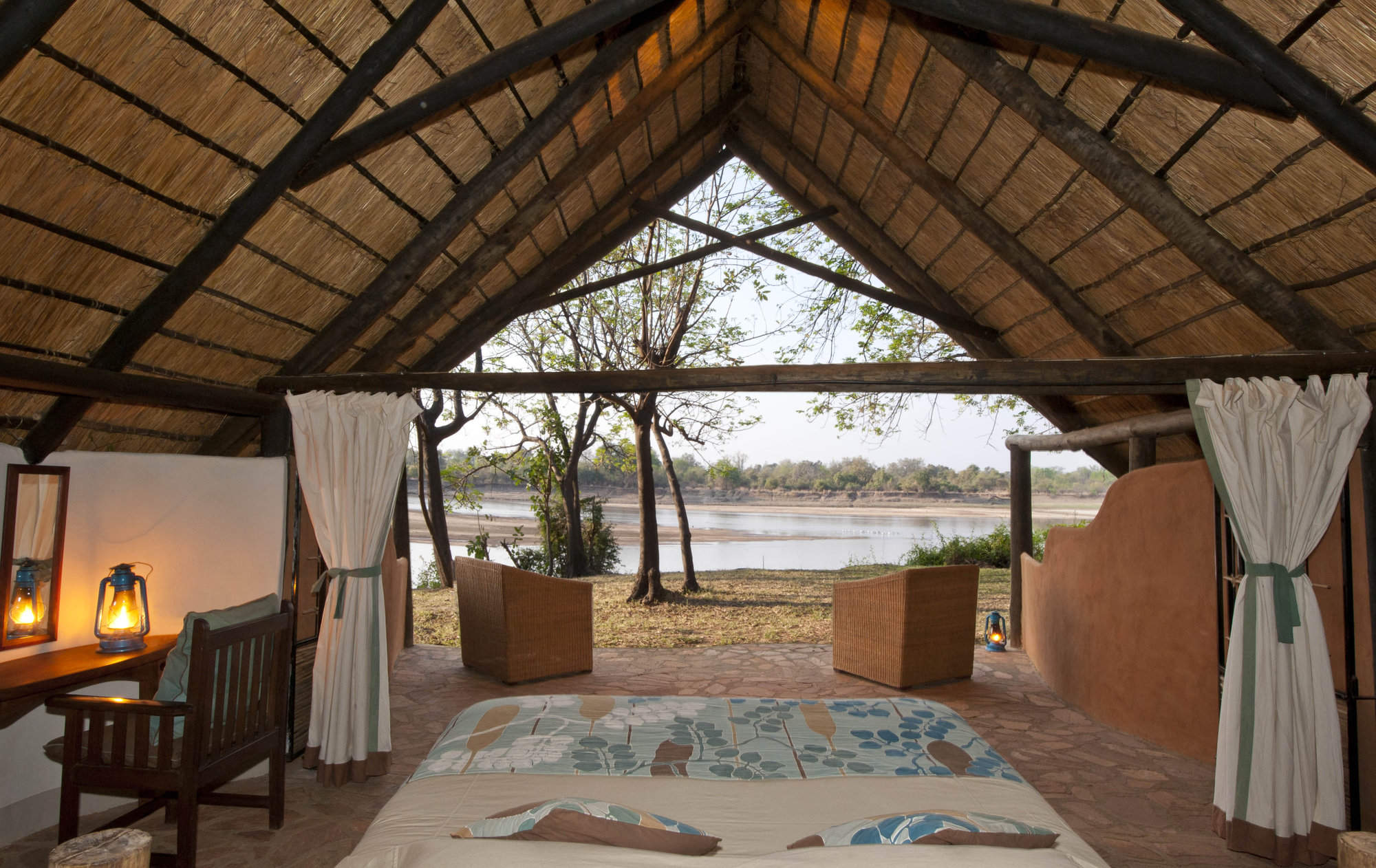
Nkwali
On the banks of the Luangwa River, with its own access to the national park, the intimate Nkwali is open year round.
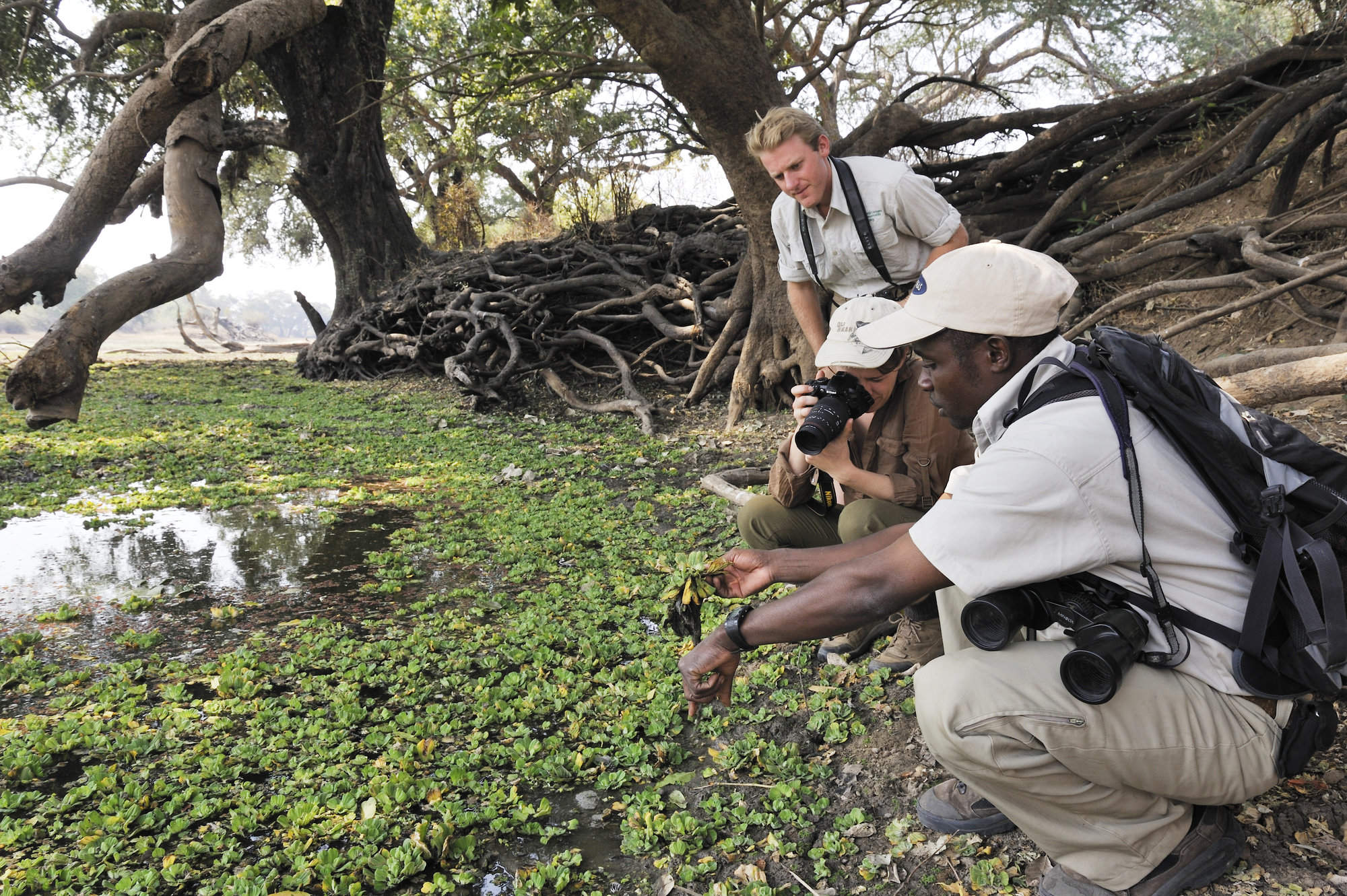
Kaingo Camp
Small and owner-run, the riverside Kaingo occupies a a quiet but excellent game area, with a series of wildlife hides and a focus on photography.

Mwamba Bushcamp
Small, remote and owner-run, Mwamba offers first-class walking, 4WD safari drives and superb hides, with excellent guides and a real bush feel.
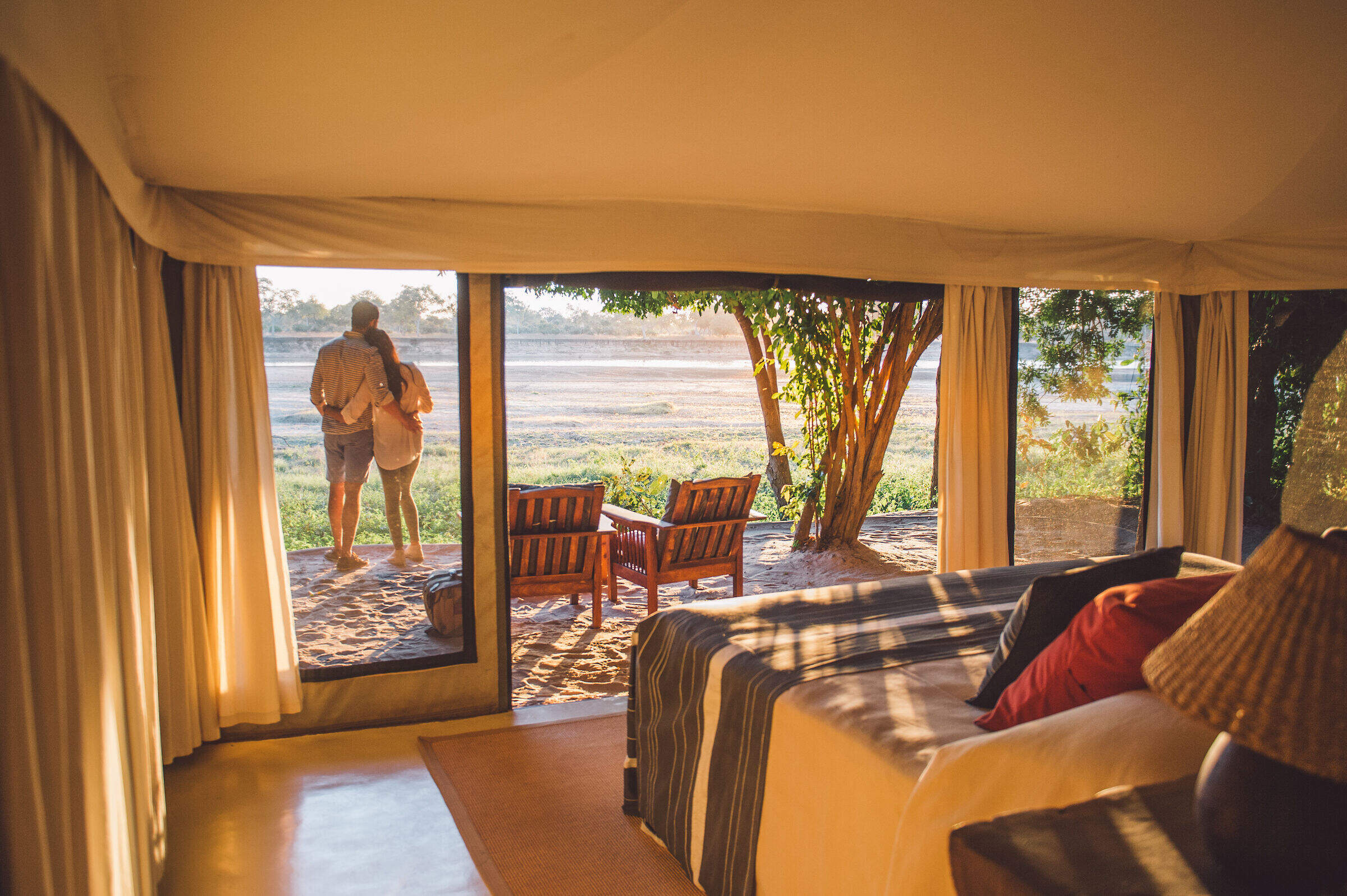
Tena Tena
One of the Luangwa's best camps, in a beautiful, remote bush location, Tena Tena is very small, exceedingly well-run and has top-rate guiding.
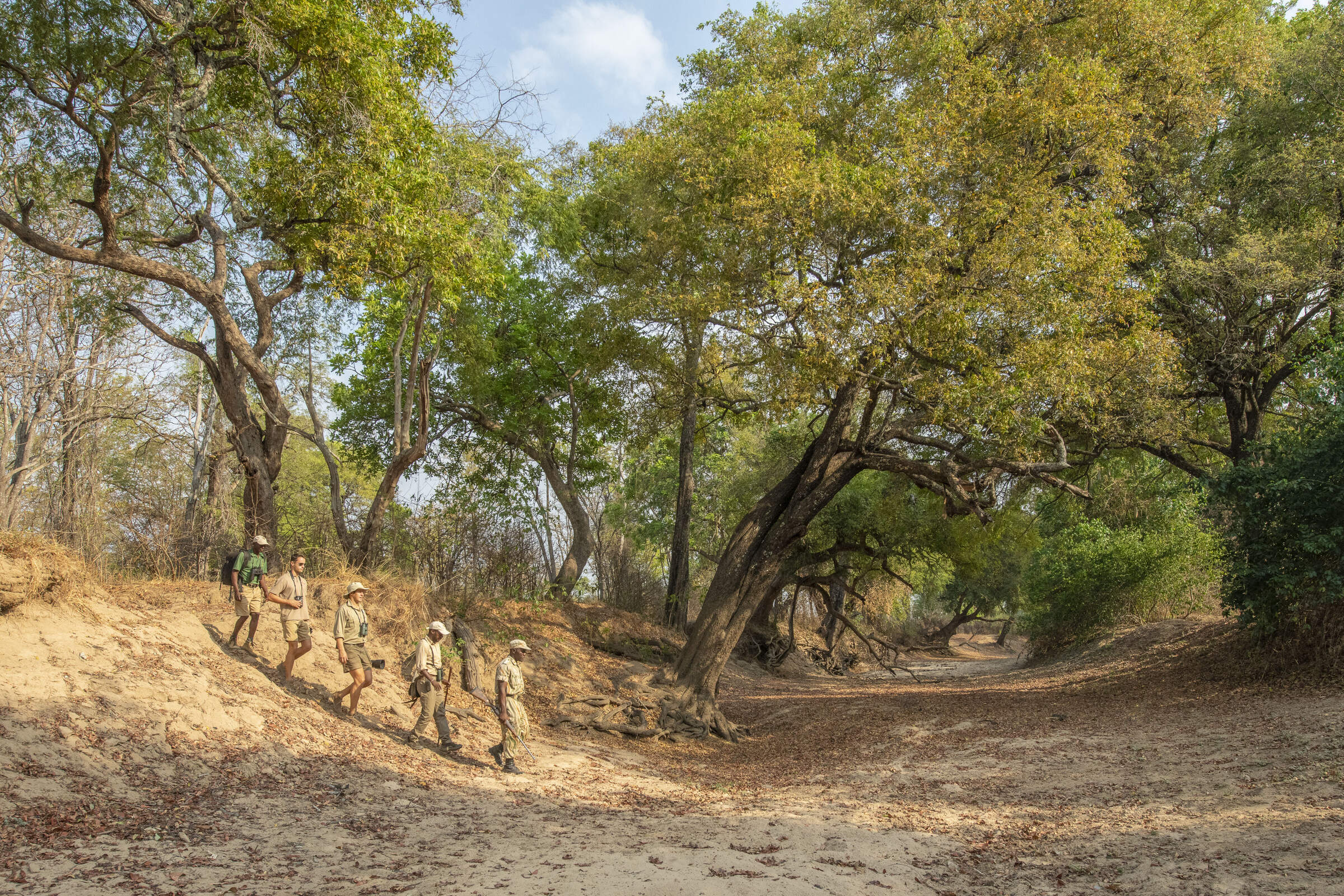
Chikoko Tree Camp
Chikoko Tree Camp is an excellent small, rustic bushcamp that concentrates on walking safaris, and is run by a top-quality operation.
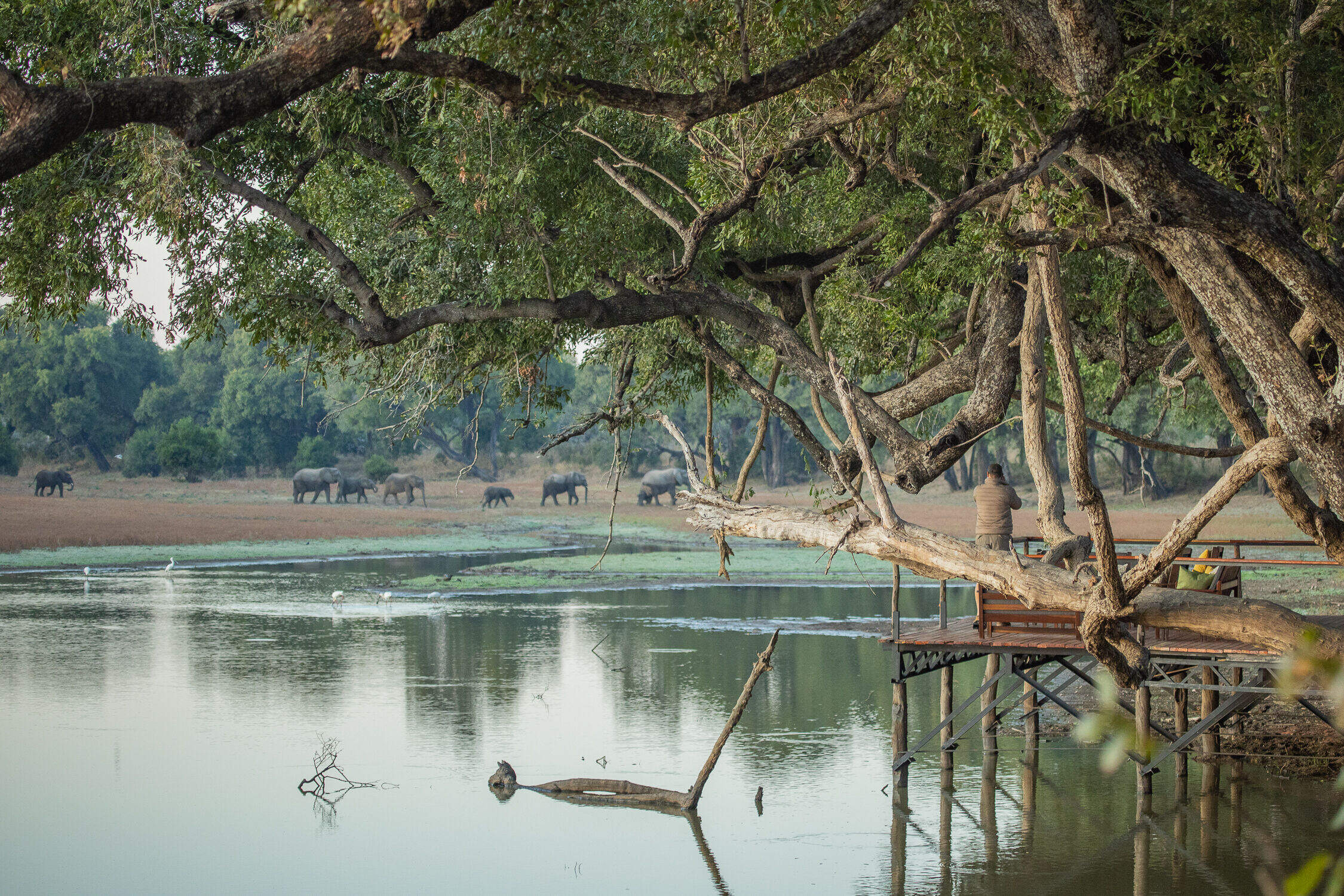
Big Lagoon Camp
Big Lagoon Camp is a great little rustic bushcamp built to high standards that focuses on excellent walking safaris, with the emphasis on top wildlife guides.
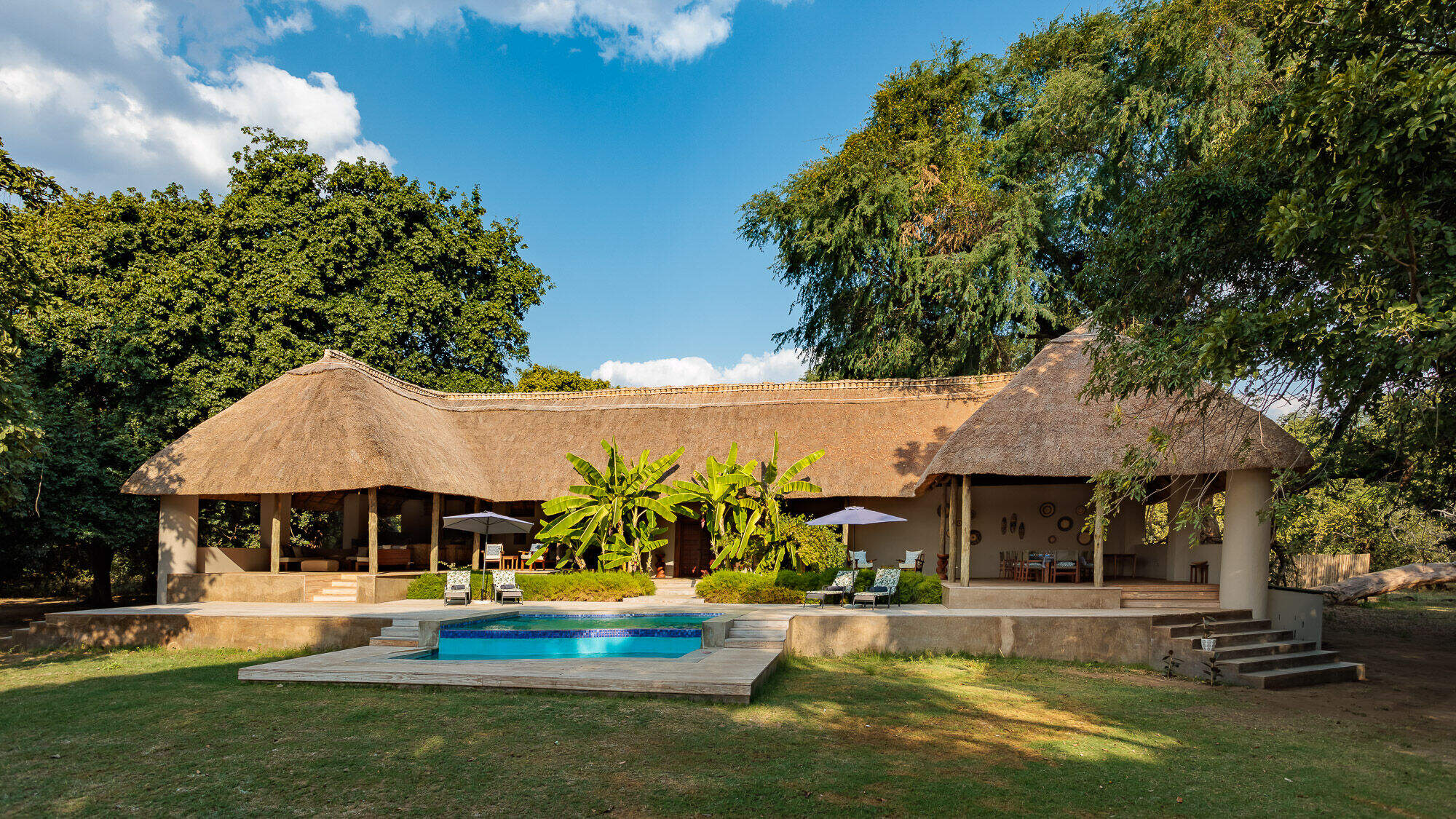
Luangwa River Camp
Luangwa River Lodge is a small and consciously stylish lodge in the Mfuwe area, overlooking the Luangwa River and the South Luangwa National Park beyond – an area renowned for great game.
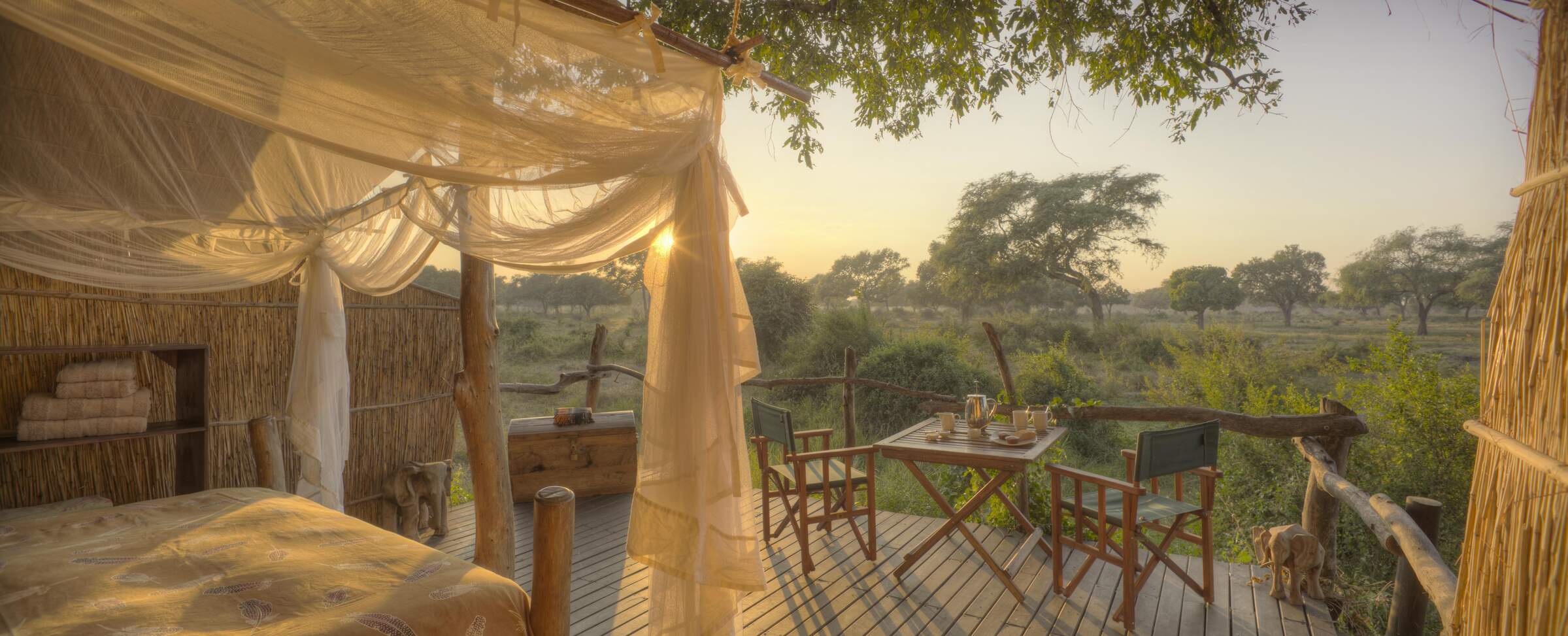
Flatdogs Camp
A relatively big safari camp, Flatdogs offers value for money with great guiding and good food in a comfortable, relaxed setting.
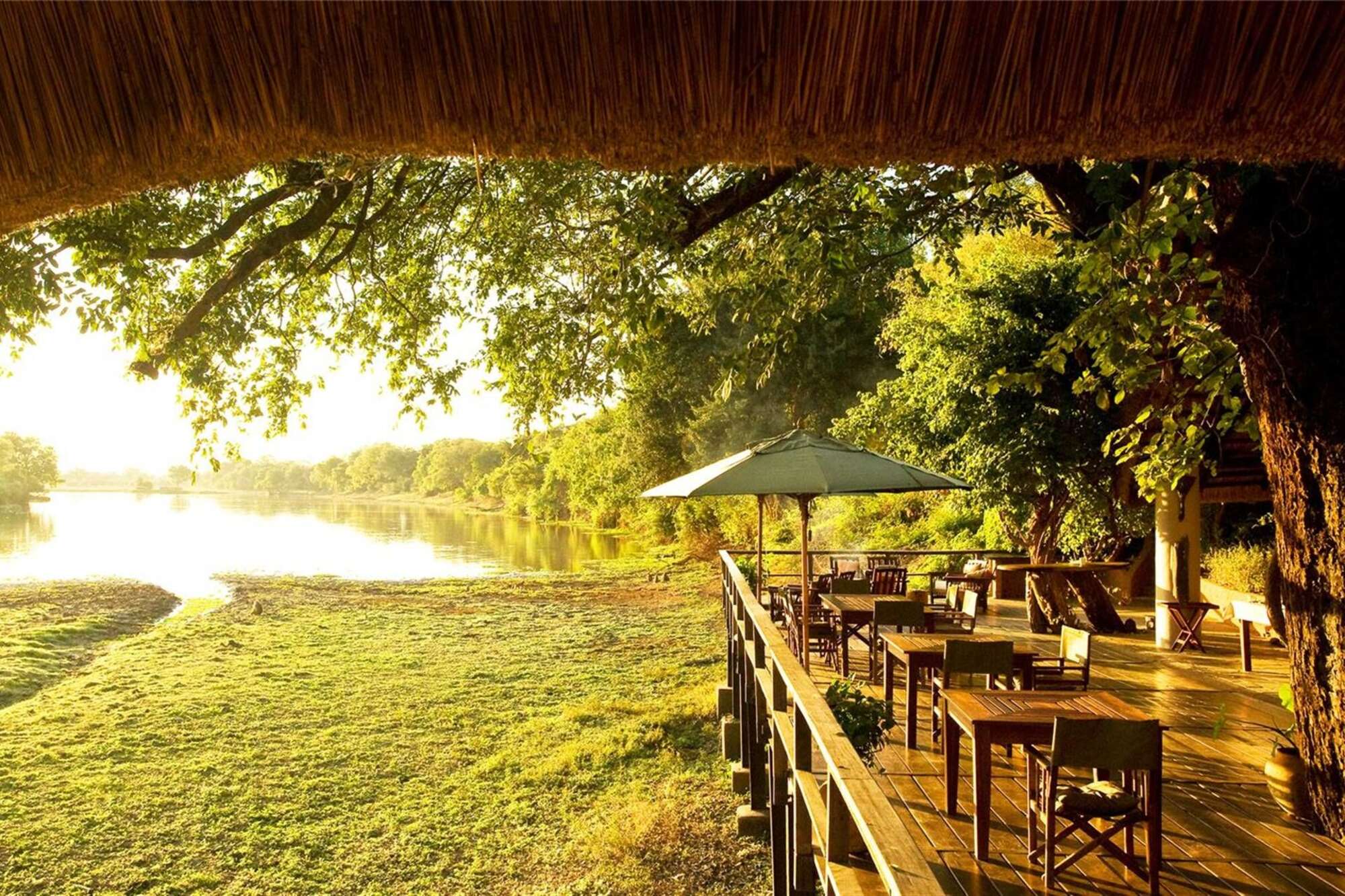
Kapani Lodge
Kapani Lodge is now the main office base for Norman Carr Safaris, one of the Luangwa's oldest safari operations.
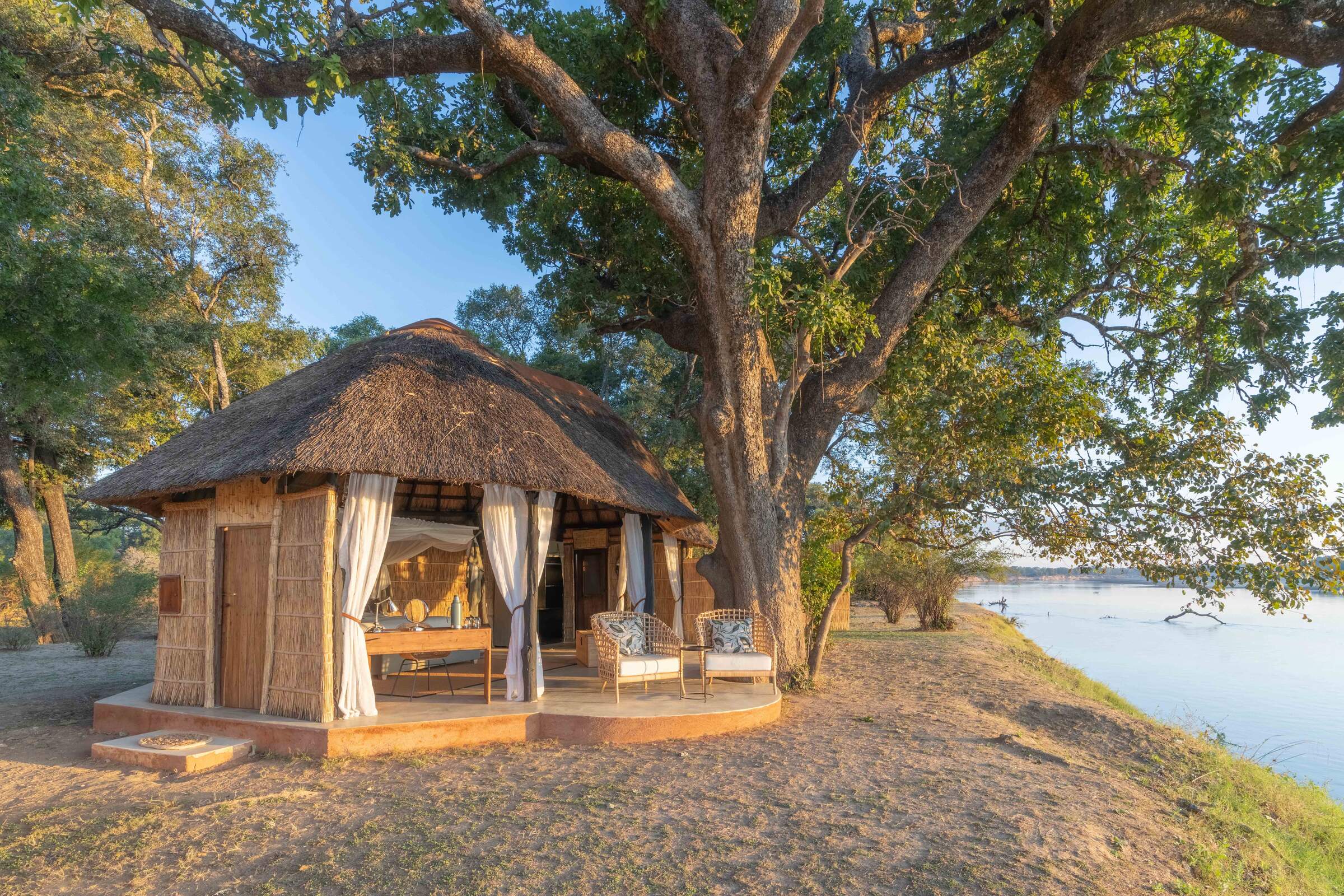
Mchenja Bushcamp
Set in a shady ebony grove on the banks of the Luangwa, Mchenja is a smart tented bushcamp. It combines well with Kakuli and Nsolo – its sister camps with a focus on walking safaris.
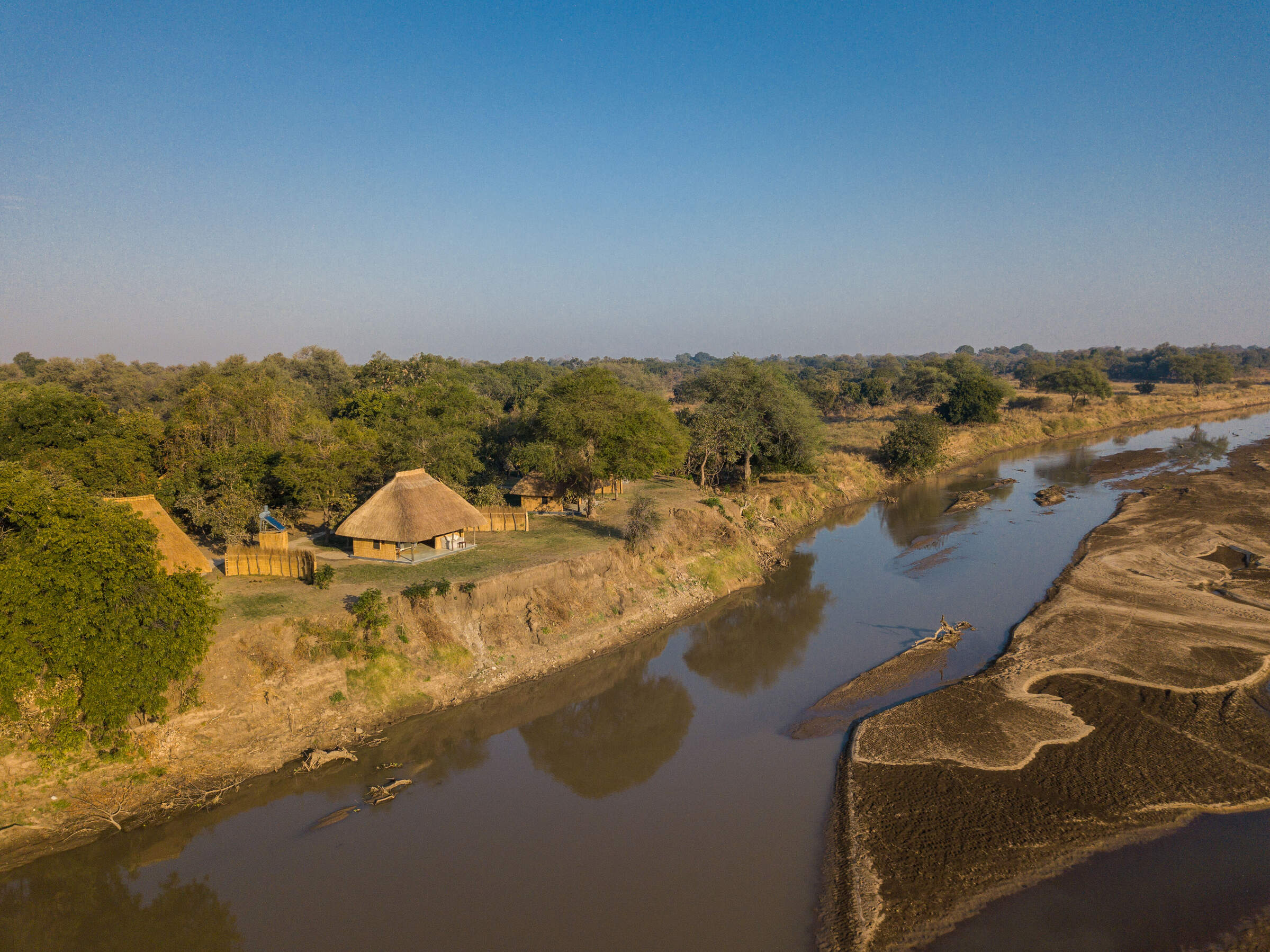
Kakuli Bushcamp
Beside the Luangwa River, Kakuli is a comfortable tented bushcamp offering 4WD safaris and walking safaris – the best of which are camp-to-camp walks linking Kakuli with its nearby sister camps.
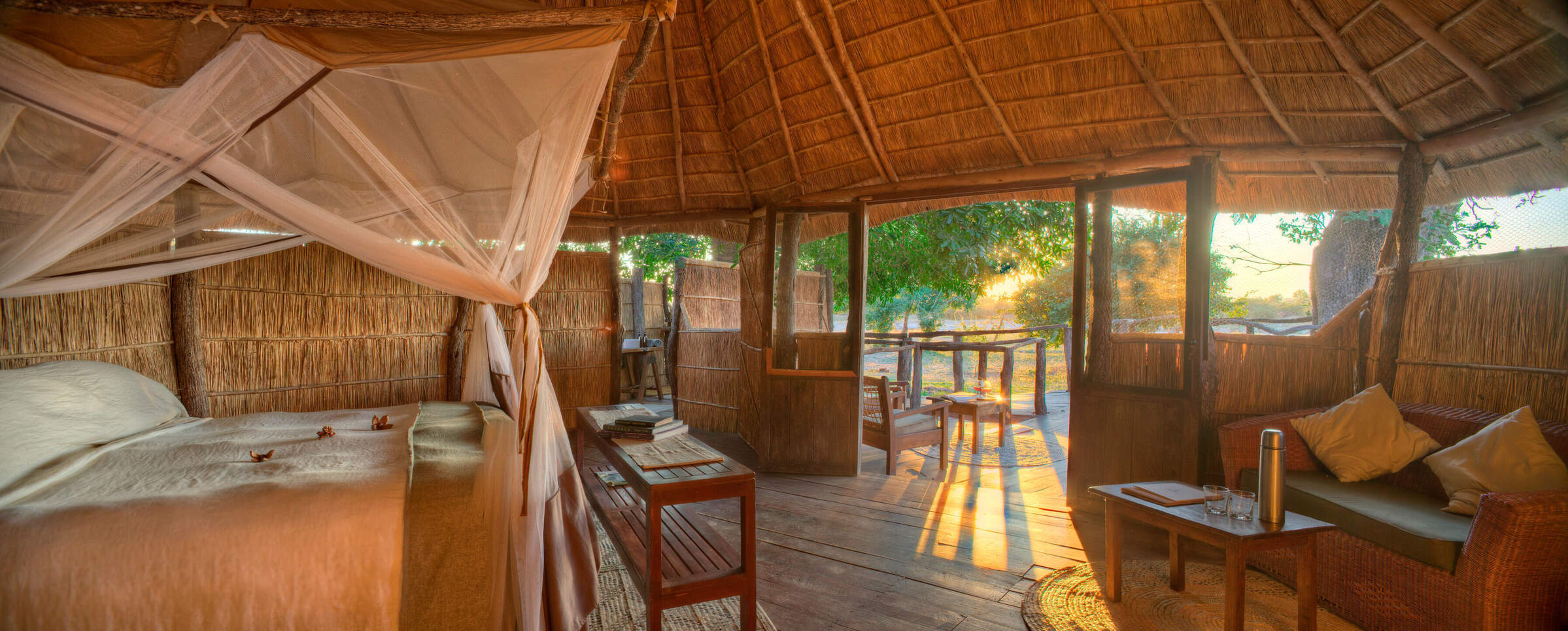
Nsolo Bushcamp
Nsolo is a small, comfortable bushcamp overlooking one or two pools in the usually dry Luwi riverbed. It concentrates on walking safaris in an interesting and diverse area, led by a knowledgeable guide.
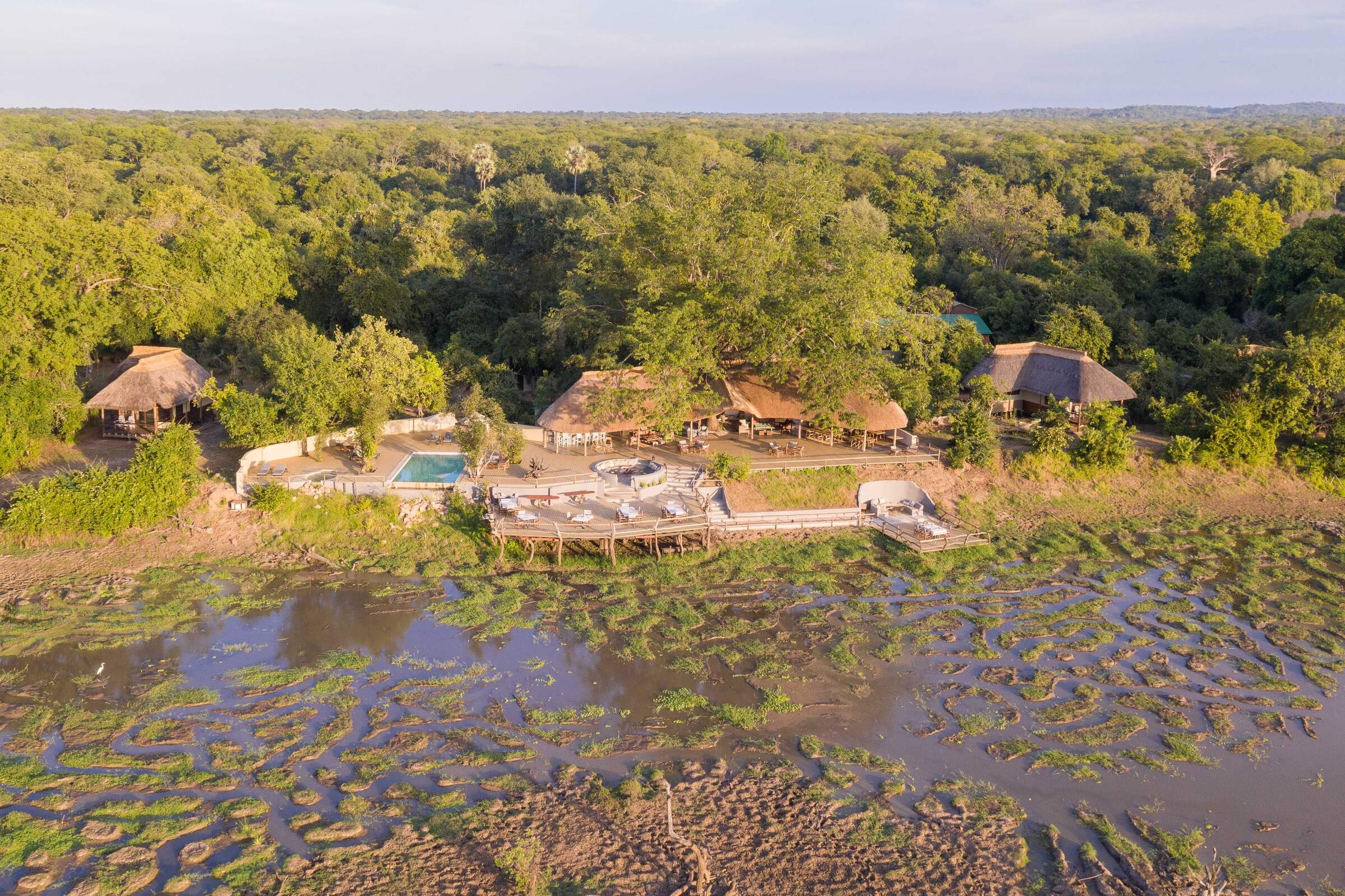
Kafunta River Lodge
Kafunta is a laid-back, friendly and good-value lodge on the outskirts of South Luangwa National Park.
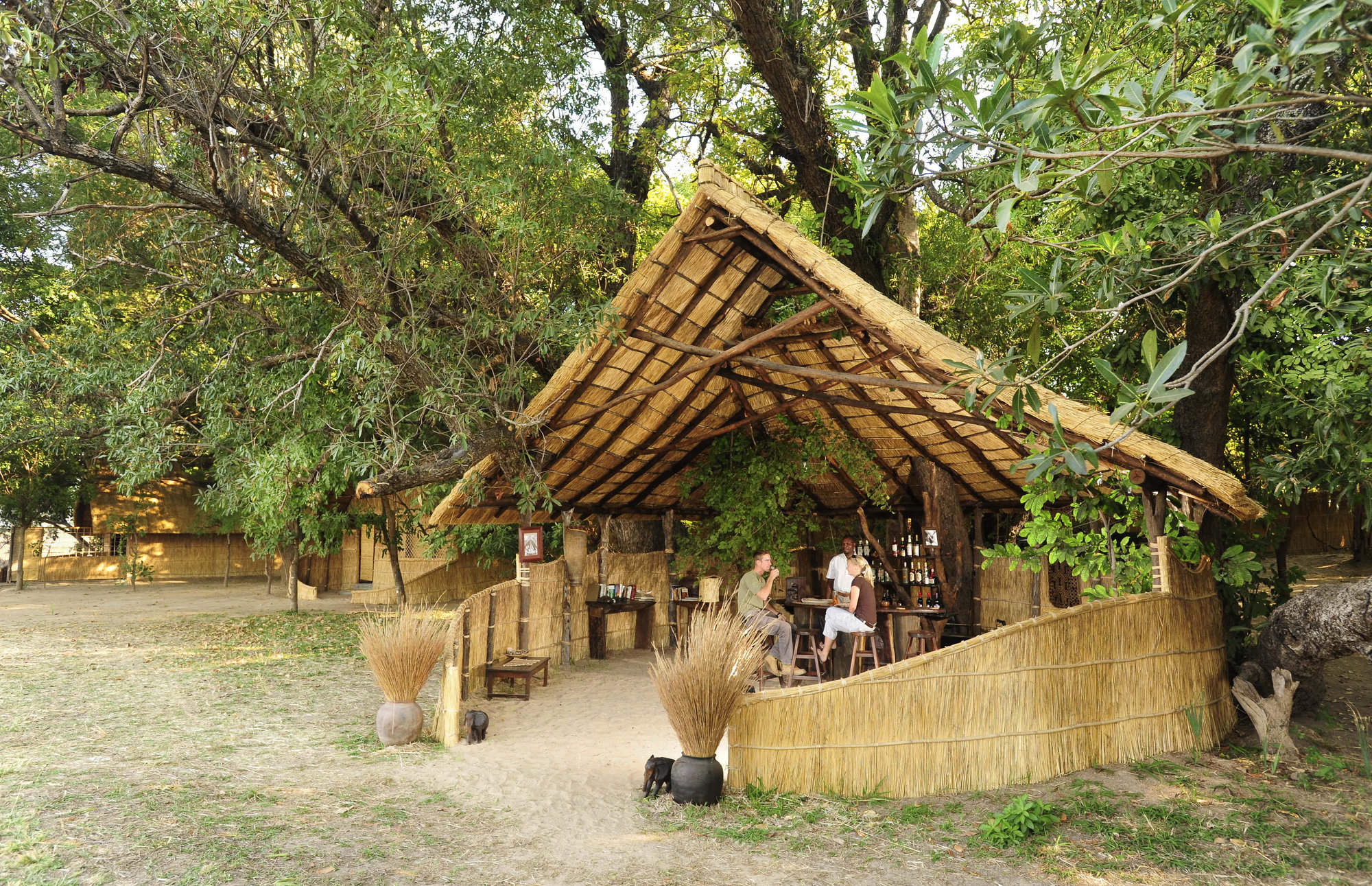
Luwi Bushcamp
In a remote part of the South Luangwa National Park, Luwi is a rustic bushcamp whose emphasis is on walking safaris with great guiding and a chance of seeing some rarely seen and elusive antelope.
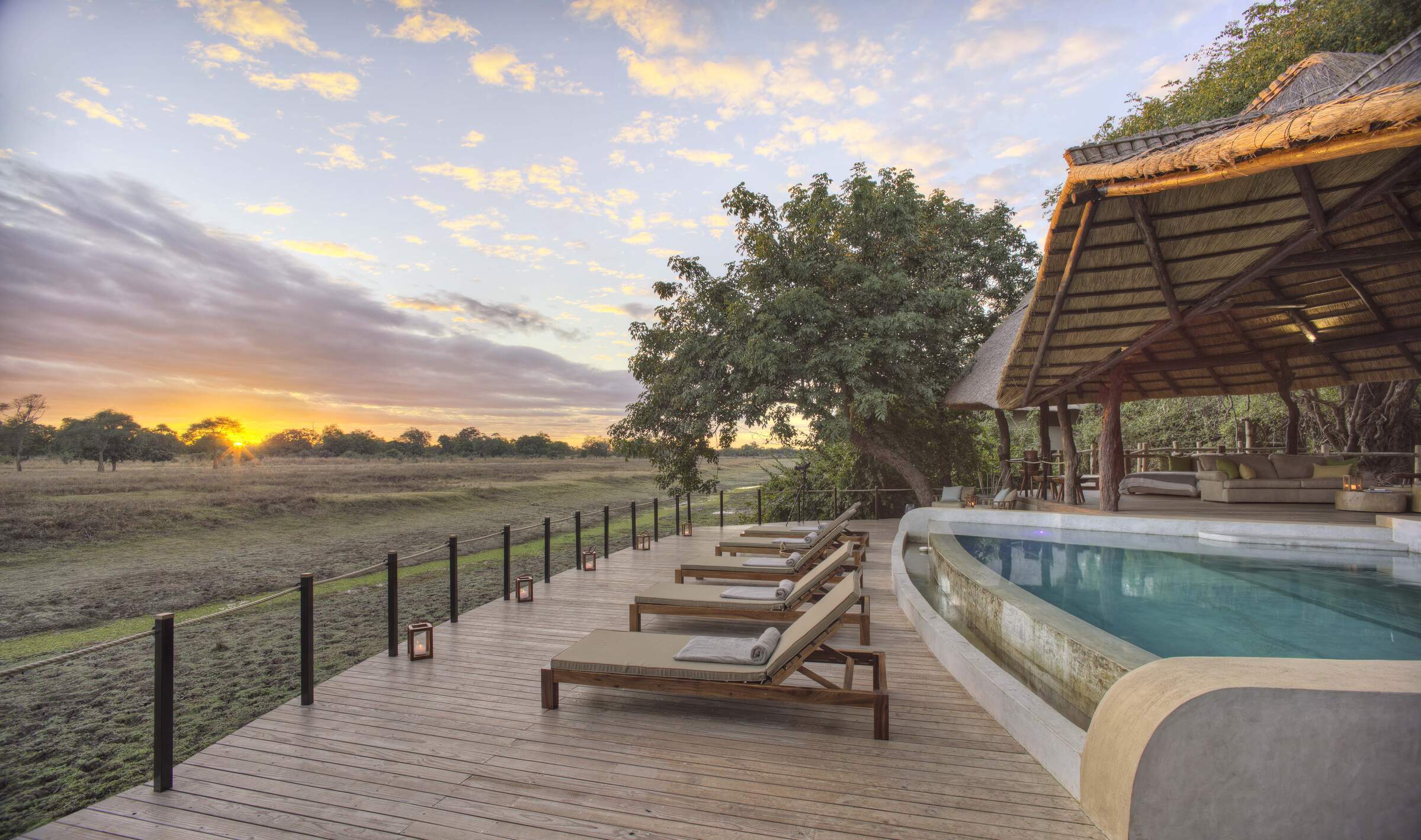
Lion Camp
Lion Camp is an established and comfortable camp with a swimming pool, located near to the game-rich Lion Plain in the northern part of South Luangwa National Park.
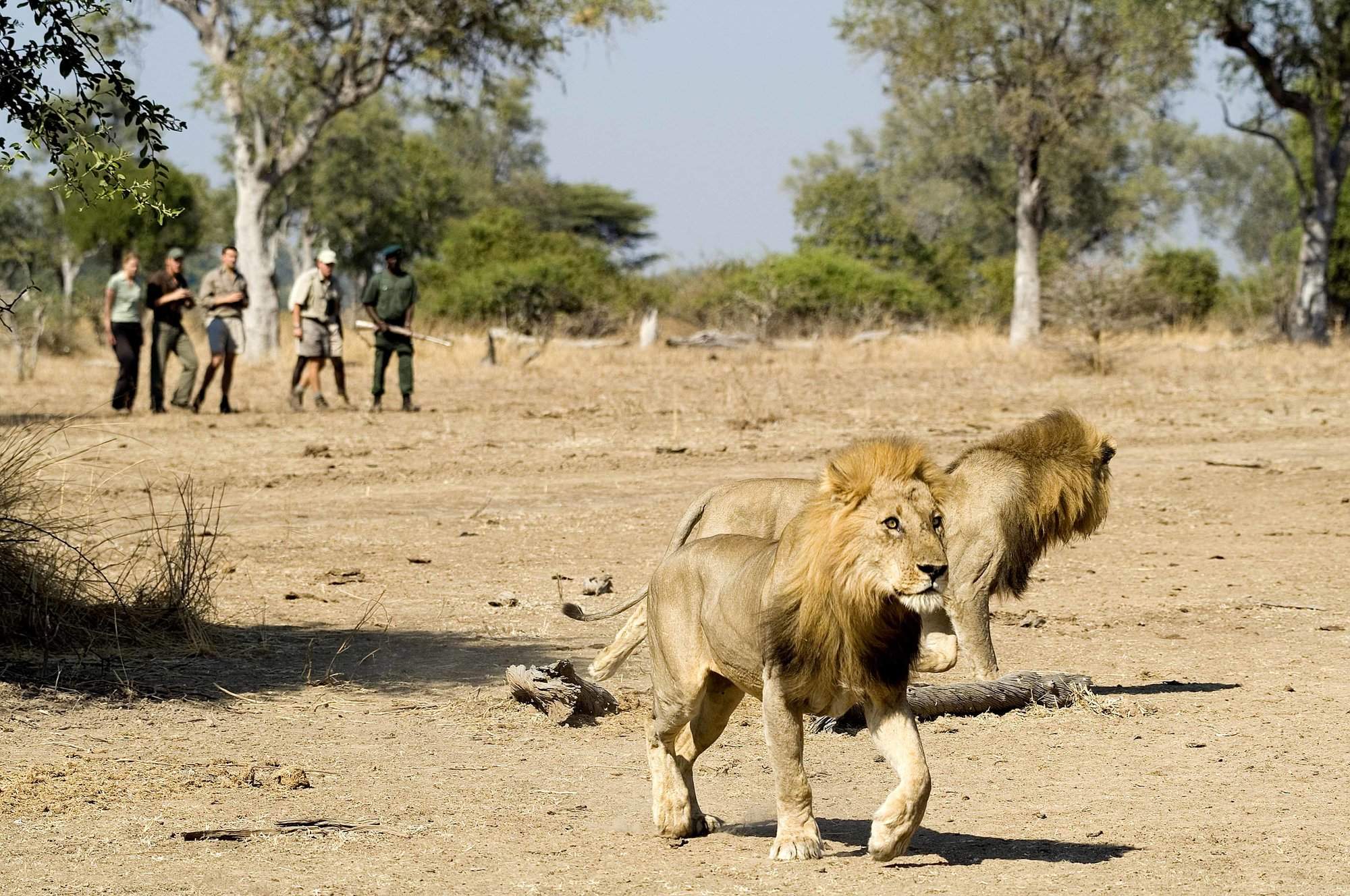
Robin Pope mobile
RPS mobile safari camps are at the heart of their set-itinerary walking safaris in South Luangwa National Park, which start and finish at a permanent camp.
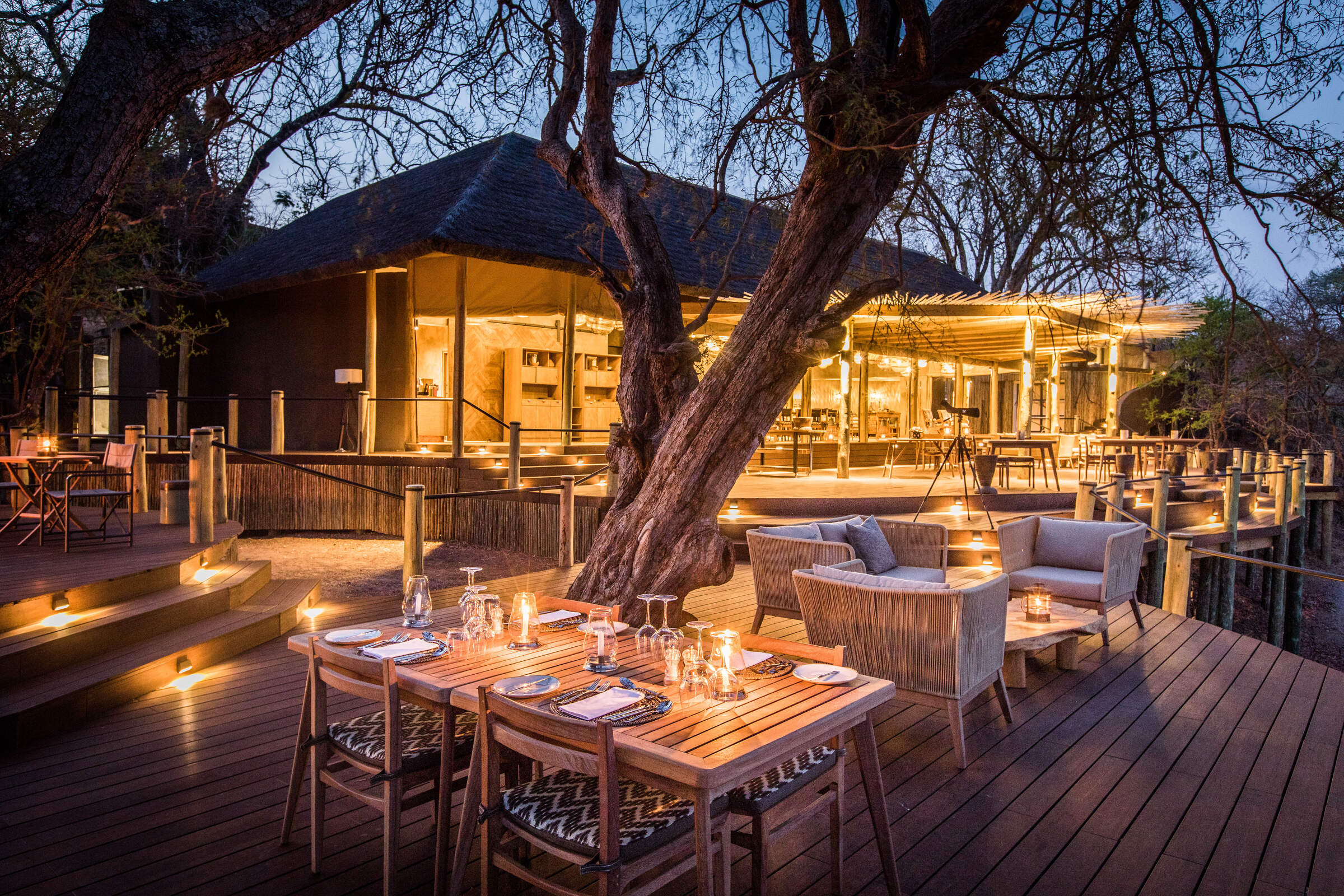
Puku Ridge
Puku Ridge is a luxurious designer camp set in a stunning location, high on a hill overlooking a floodplain within South Luangwa. Explore from here on 4WD safaris and walks.
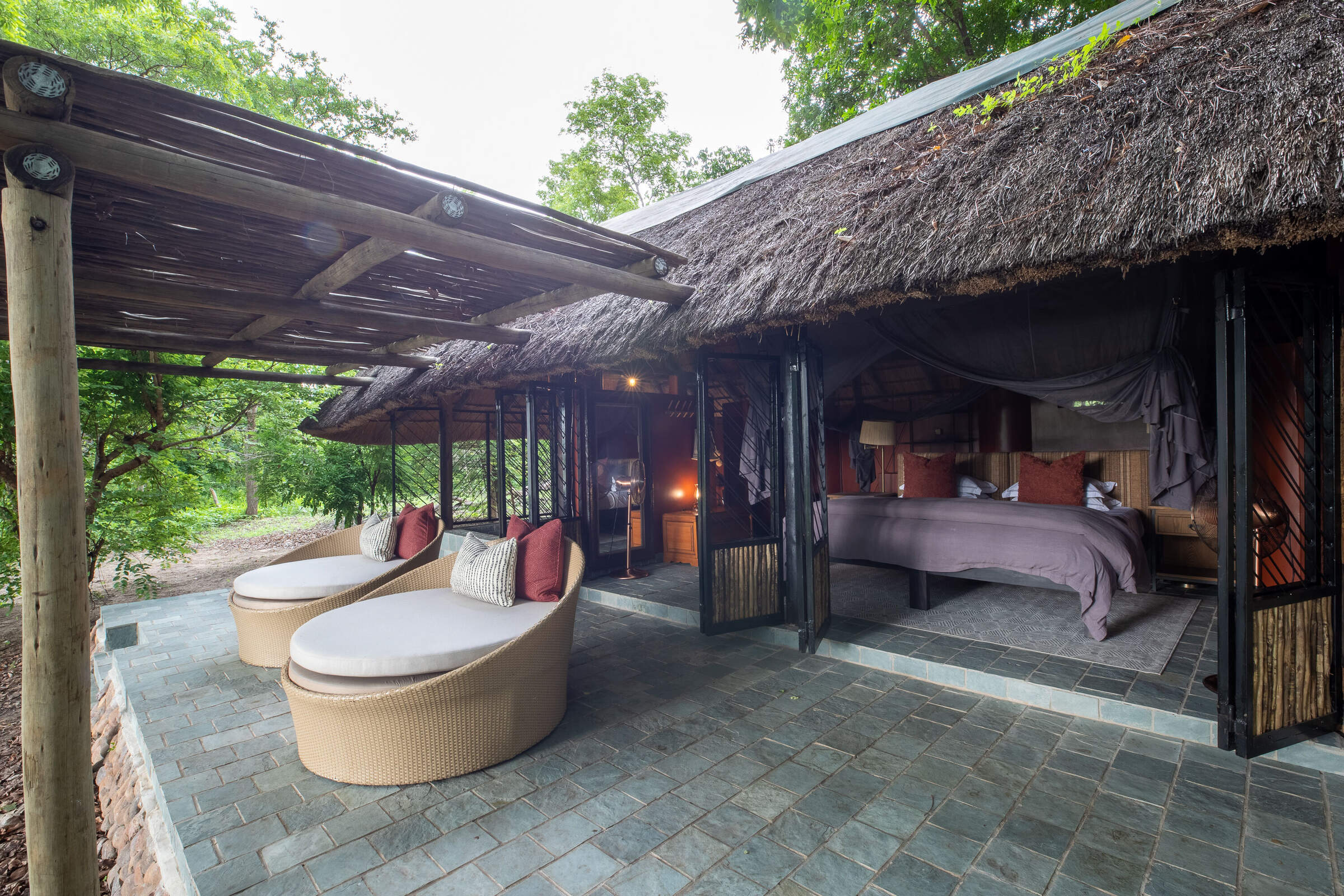
Kapamba Bushcamp
In the remote far south of South Luangwa National Park, Kapamba is a small and very comfortable bushcamp offering good walks and game drives.
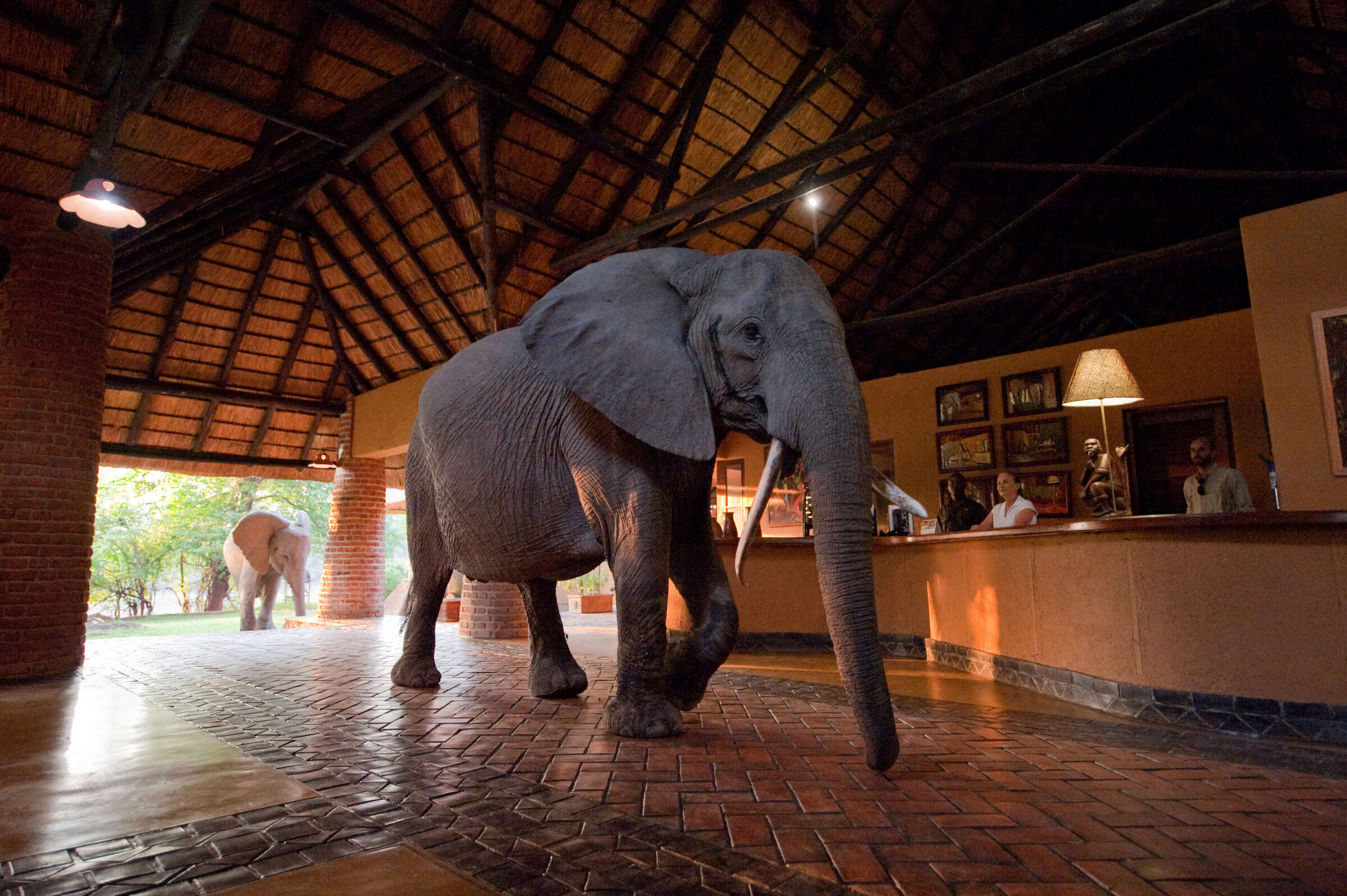
Mfuwe Lodge
In a game-rich area close to the South Luangwa’s main Mfuwe Gate, Mfuwe Lodge is relatively large by park standards, but it’s stylish, modern and family friendly.
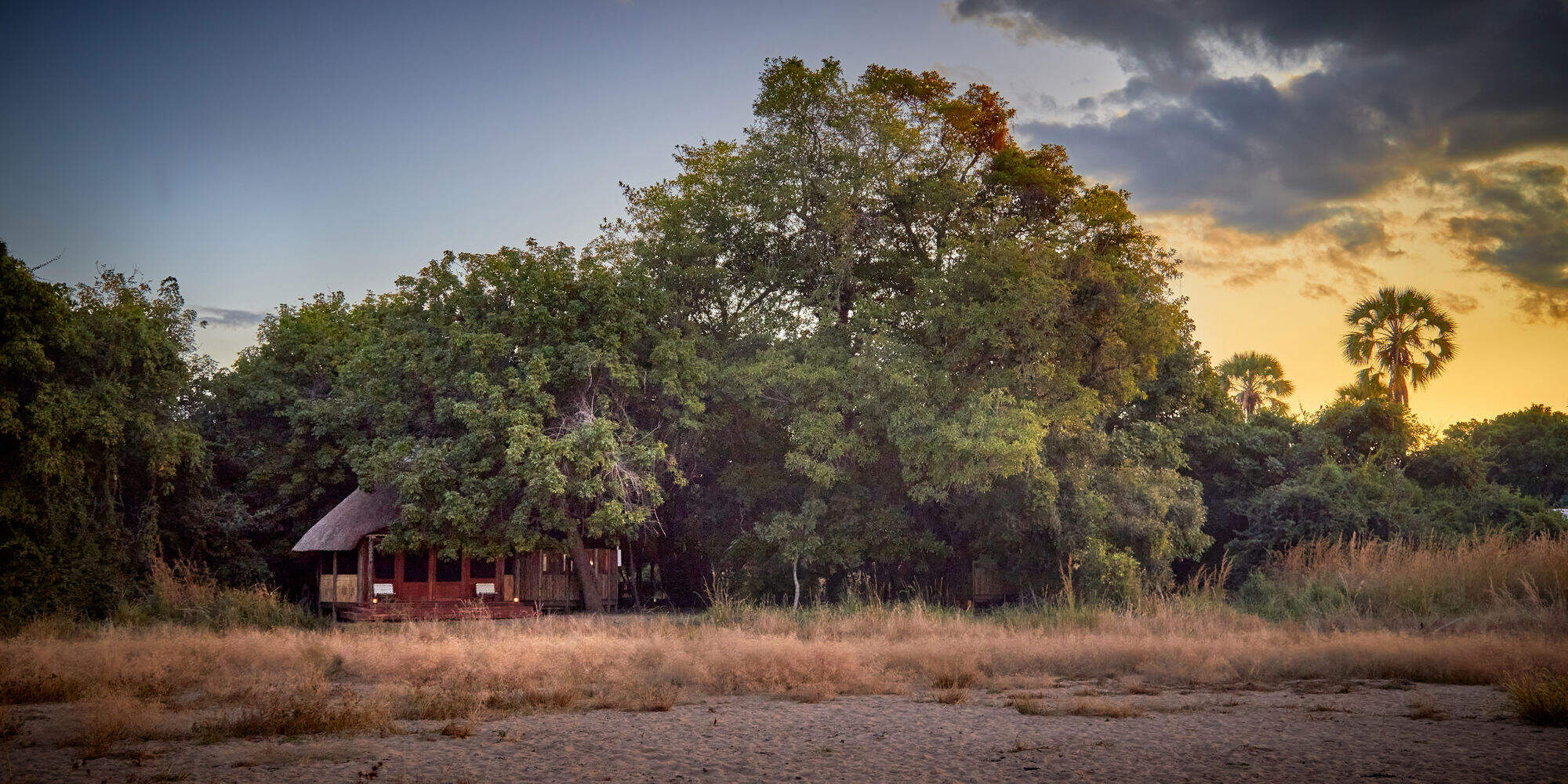
Kuyenda Bushcamp
Kuyenda Bushcamp is a classic bushcamp with particularly delightful hosts and offers top-class walking safaris in South Luangwa National Park.
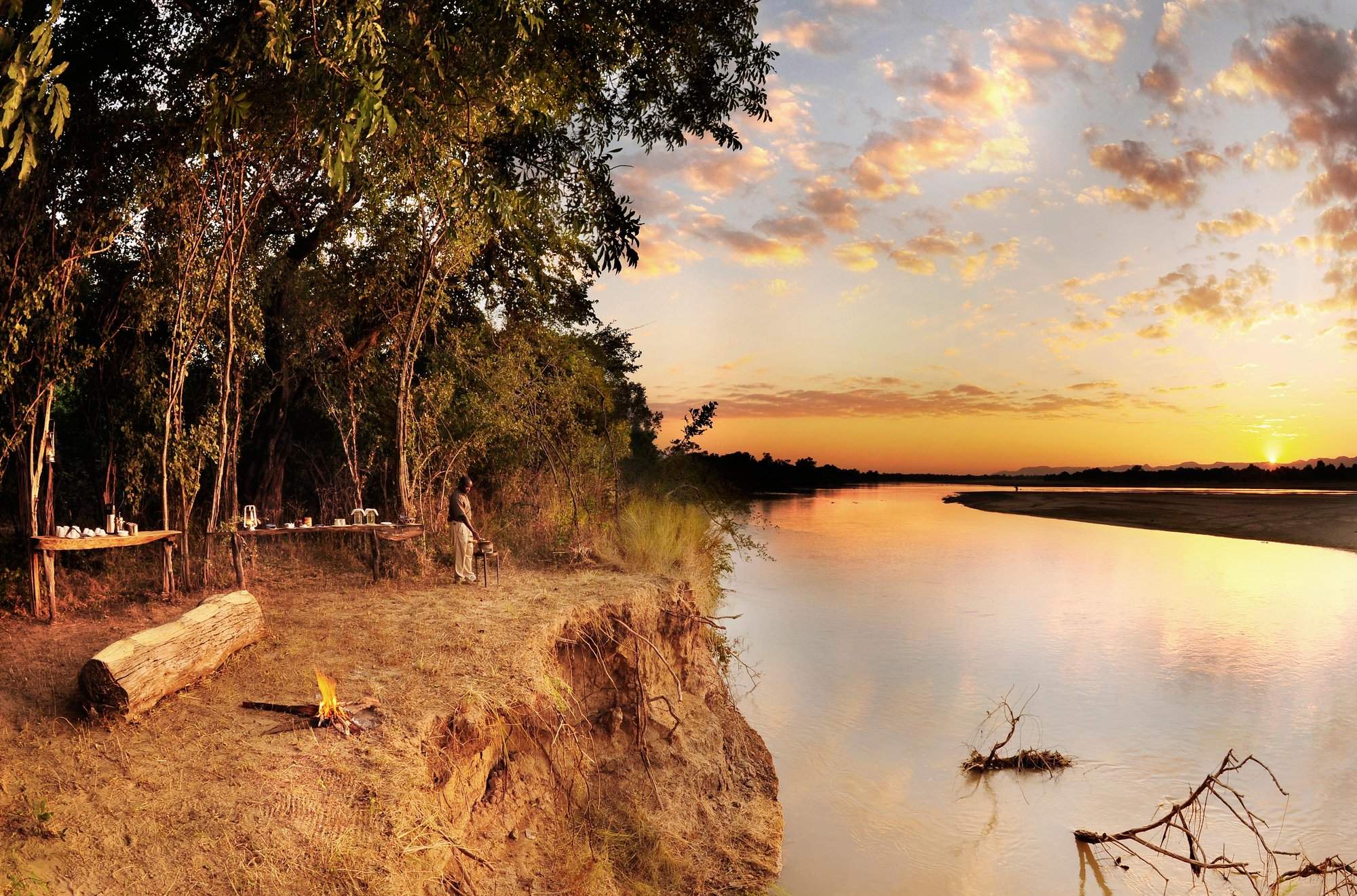
Bilimungwe Bushcamp
A smart bushcamp with four very spacious chalets, Bilimungwe offers interesting walking safaris in pretty riverine woodland, as well as day and night safari drives.
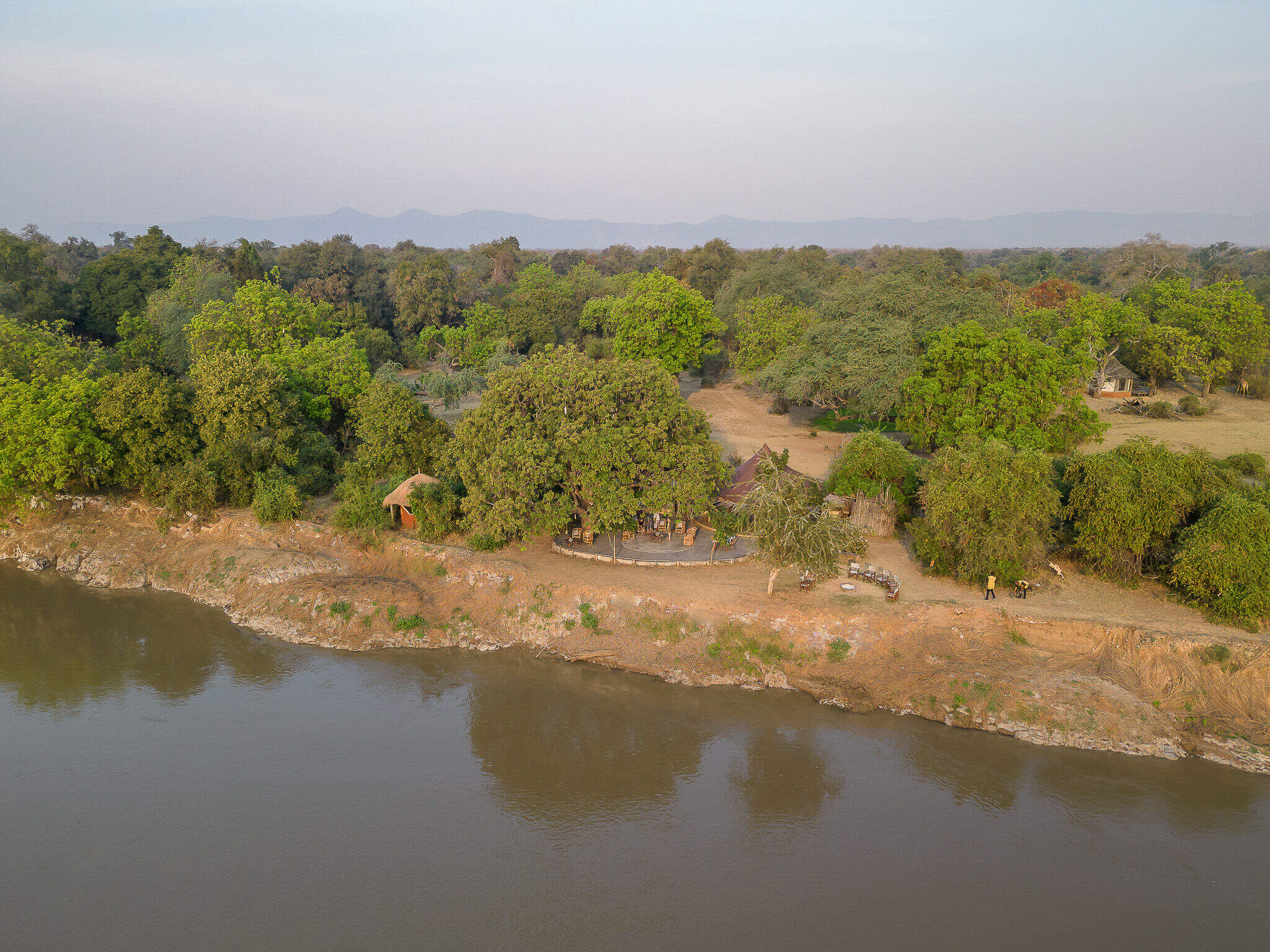
Three Rivers Camp
In the remote far south of South Luangwa National Park, Three Rivers Lodge sits at the confluence of three of the valleys rivers.
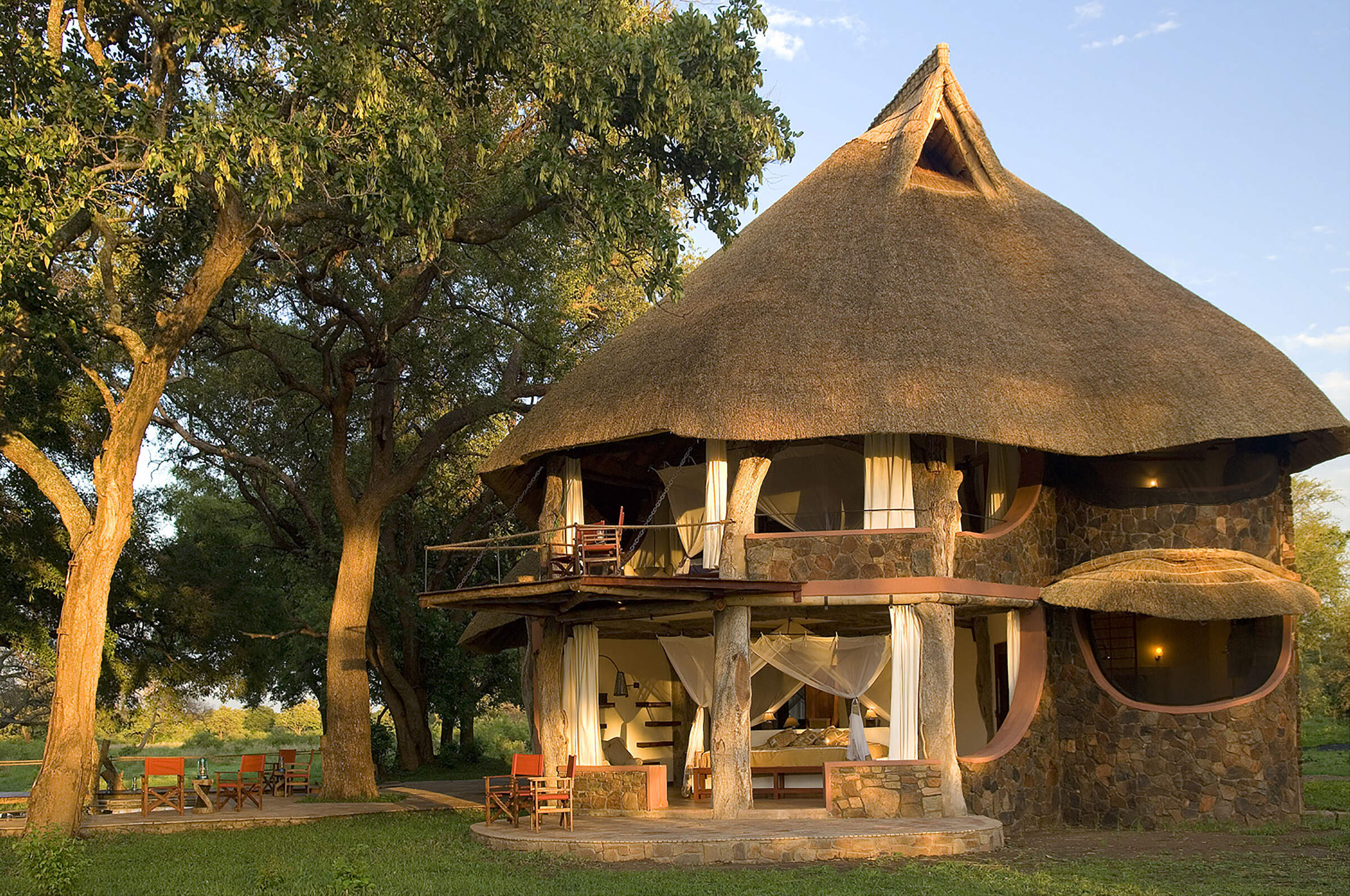
Luangwa Safari House
Luangwa Safari House is a vast and very smart four-bedroom house specifically designed for families and small groups, and offering an exclusive and flexible safari experience.
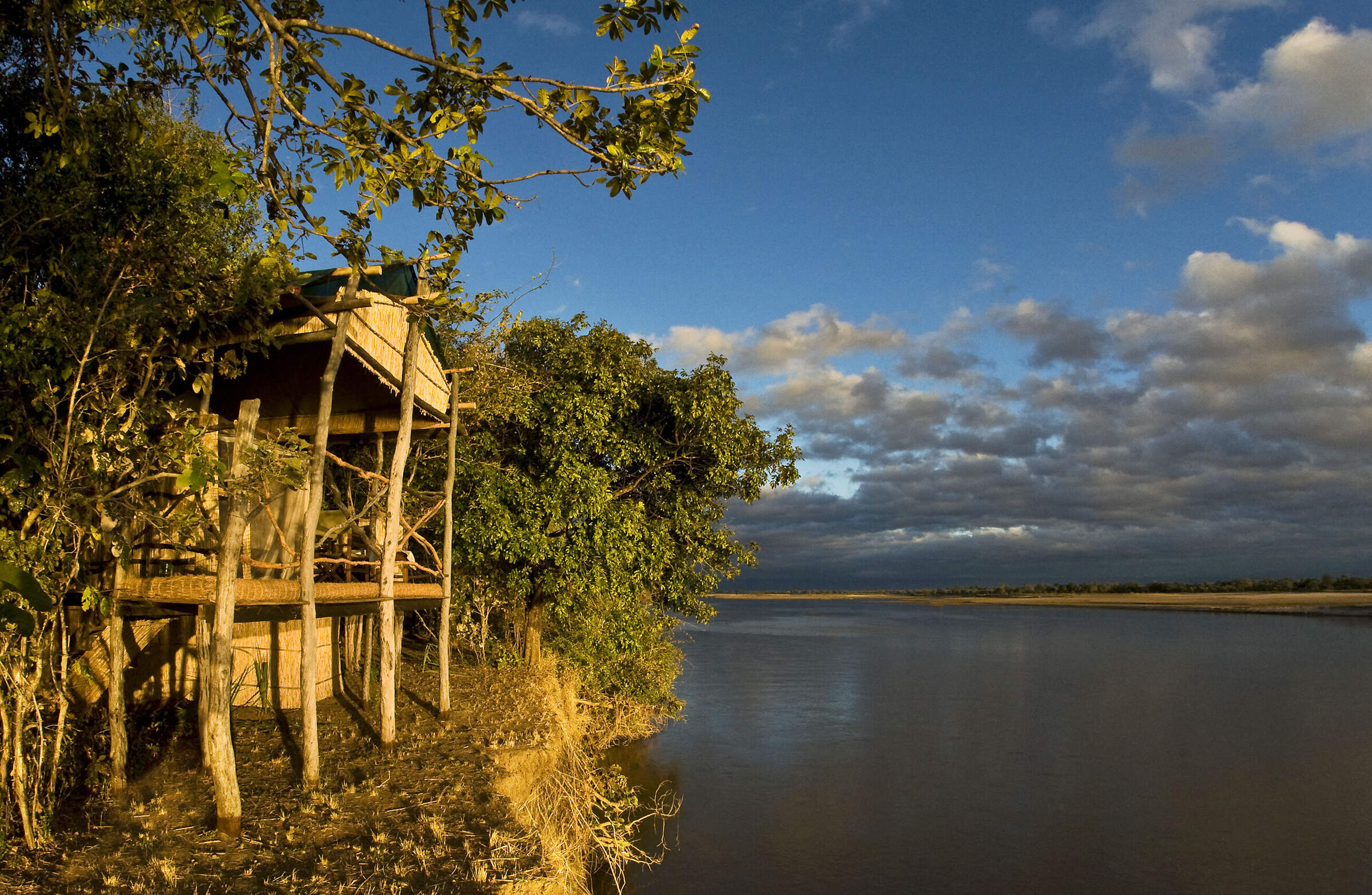
Island Bush Camp
Island Bushcamp is a good-value, rustic, walking-only camp, in arguably one of the most remote parts of the South Luangwa, well away from all other camps.
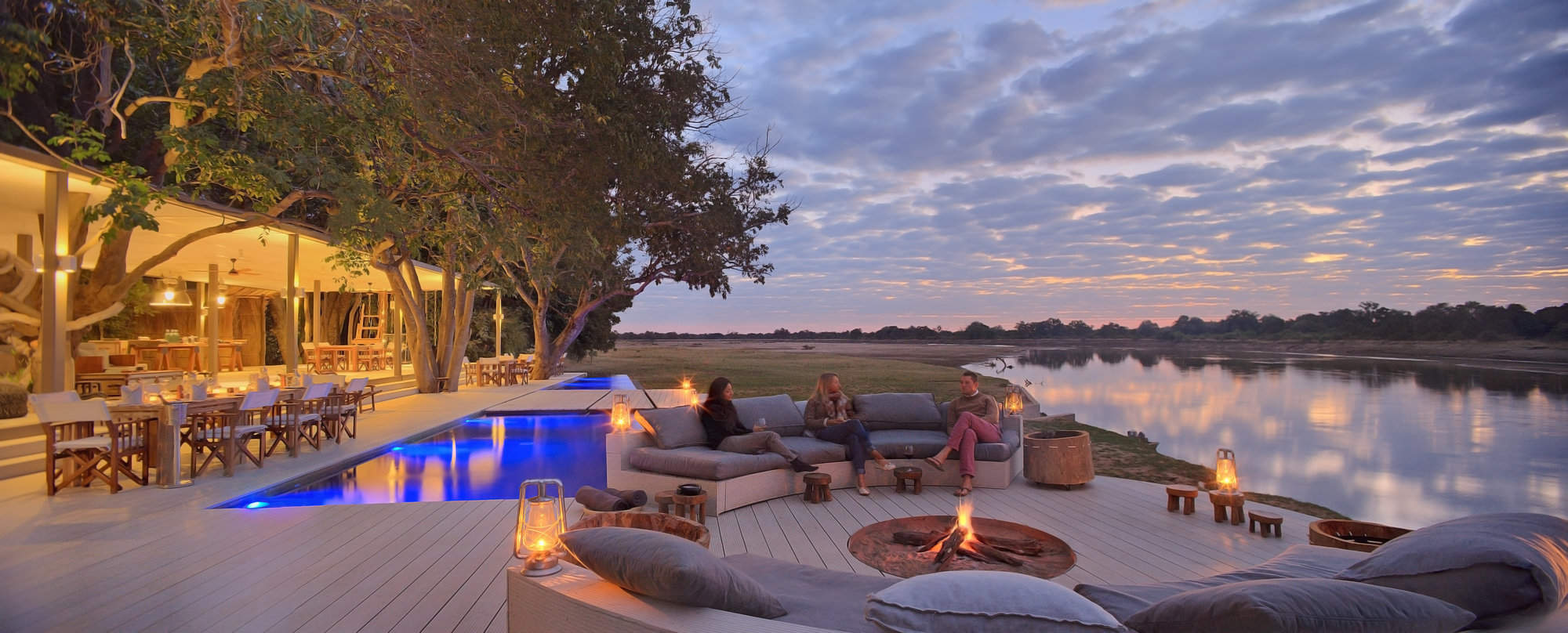
Chinzombo
Opened in early June 2013, Chinzombo offers luxurious and stylish accommodation with very high levels of service and excellent guiding.
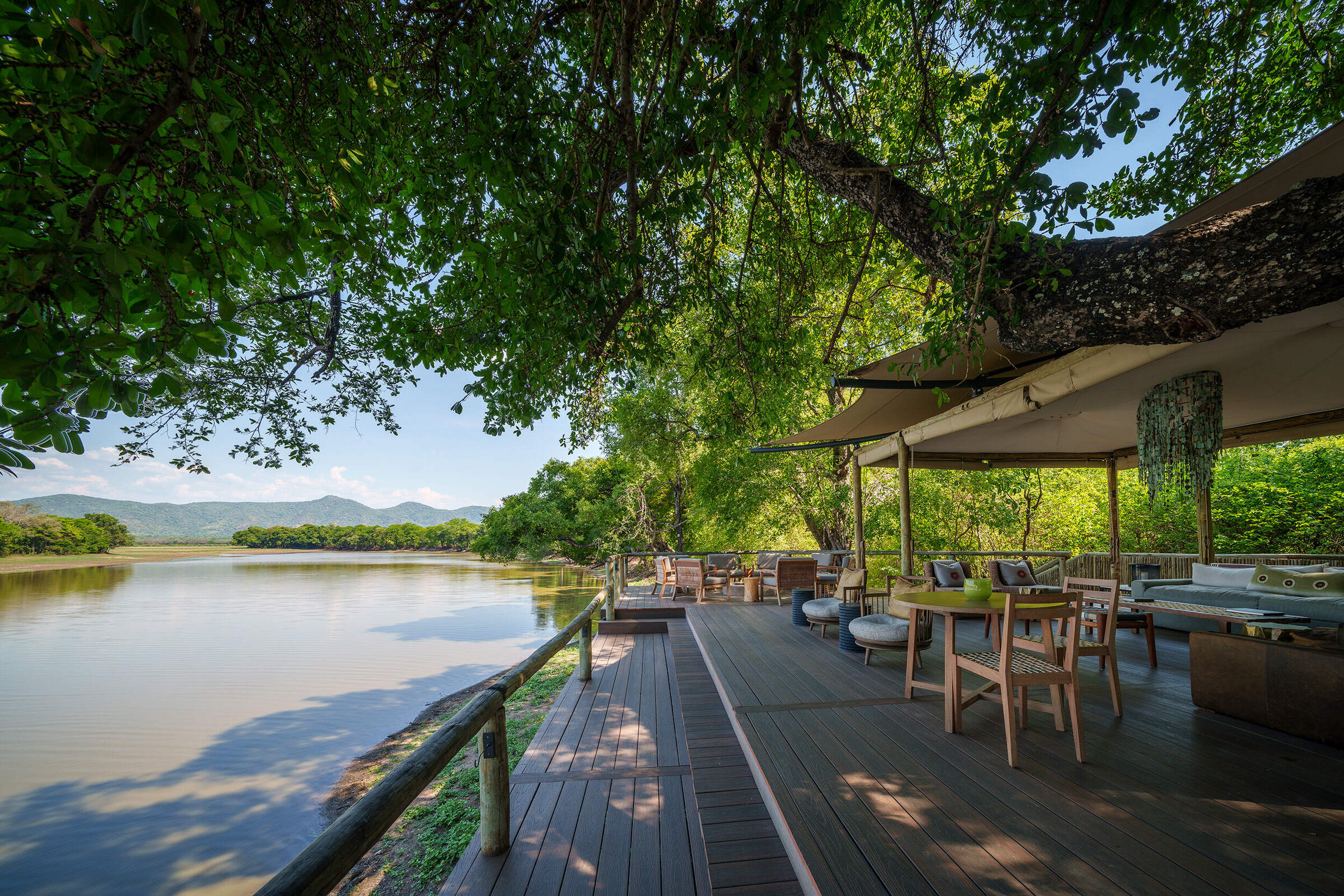
Chindeni
Chindeni Bushcamp is a very modern and minimalist camp, which is a far cry from your traditional bushcamp and unlike most of the other camps in South Luangwa.
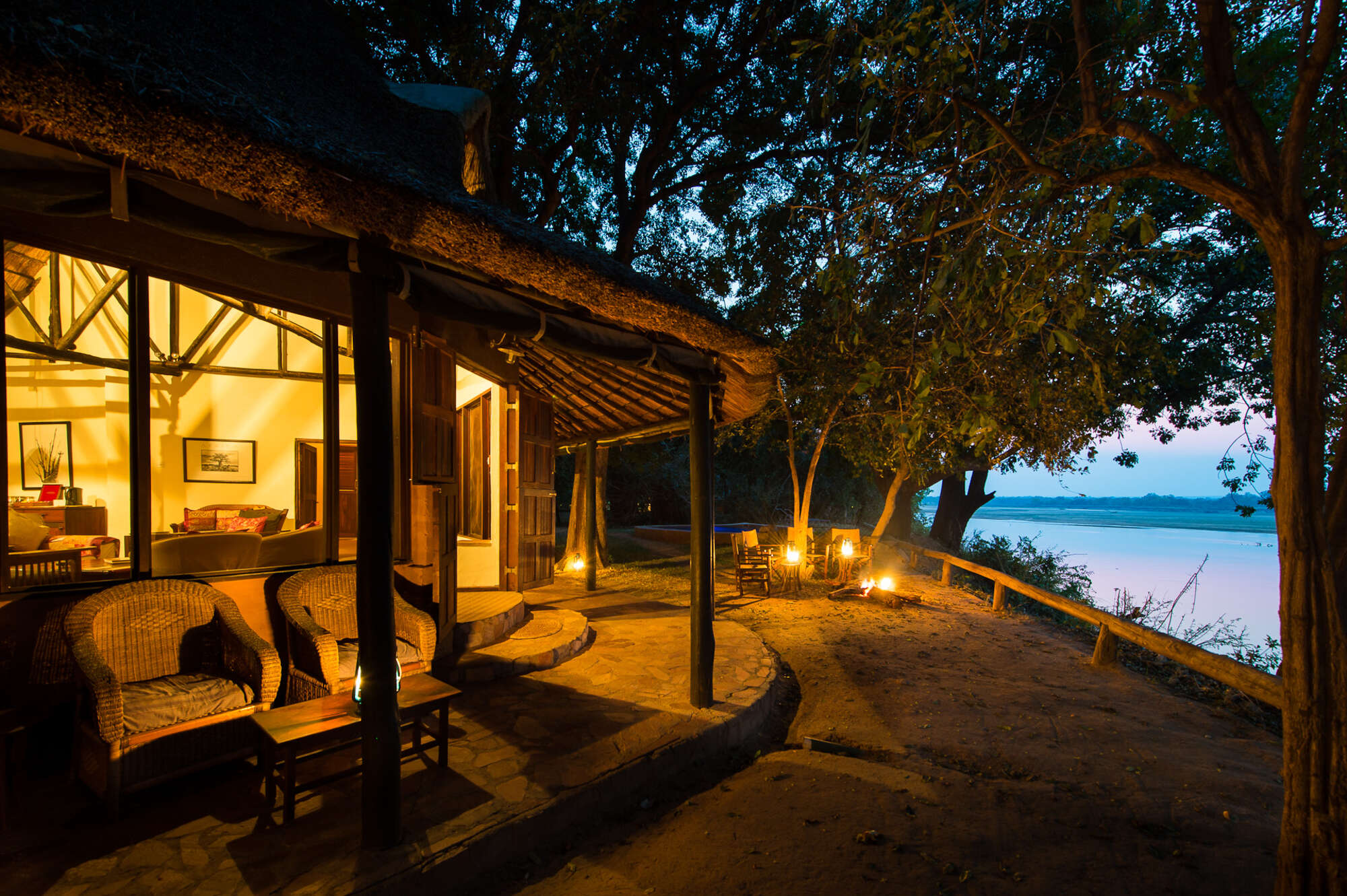
Robin's House
With your own expert guide, private vehicle, chef and valet, the two-bedroom Robin's House offers an exclusive, flexible safari experience – and is open year round.
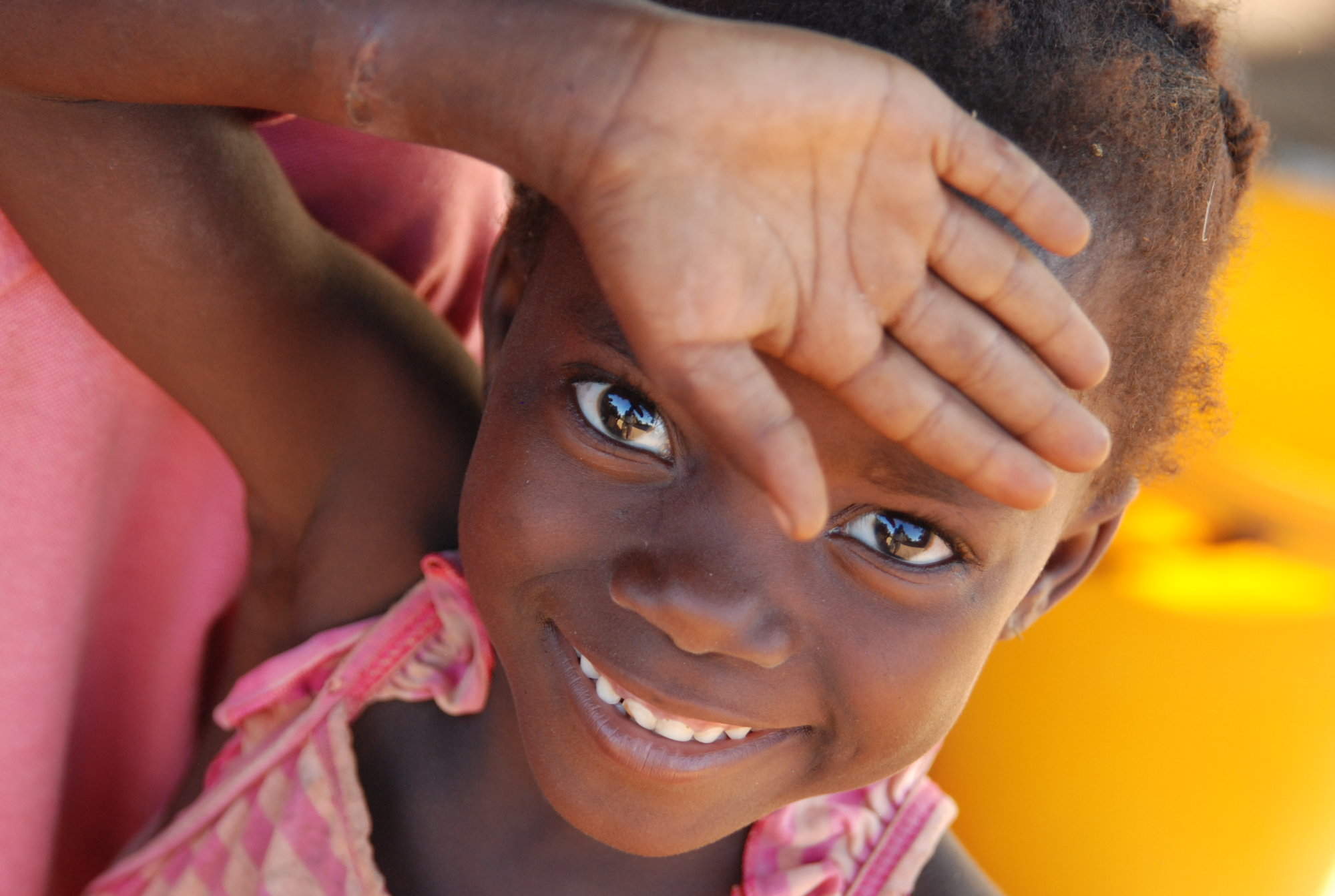
Kawaza Village
Kawaza Village – beside the South Luangwa National Park, offers guests the rare opportunity to appreciate local village life. Visit for a few hours or stay overnight.
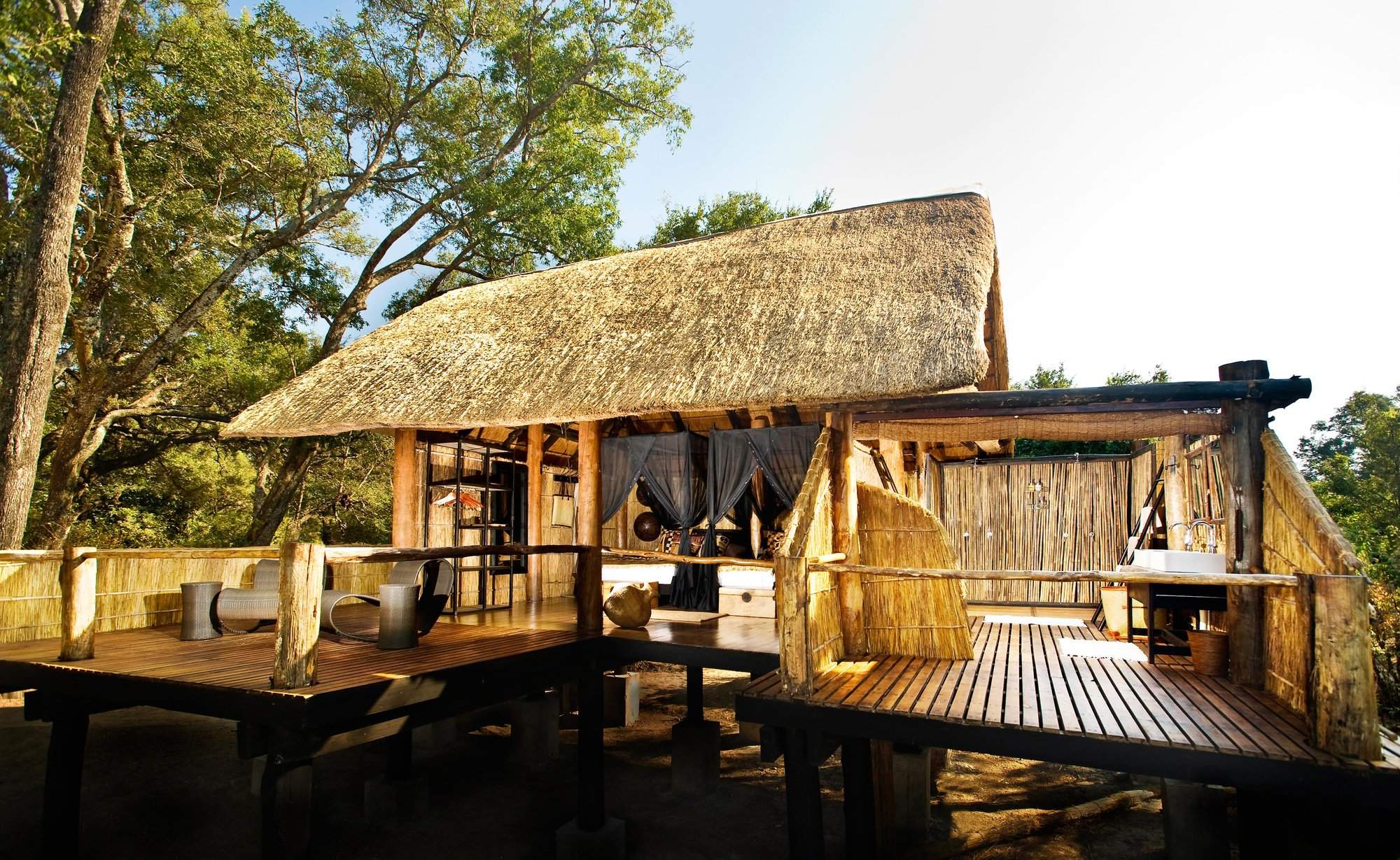
Chamilandu Bushcamp
A comfortable little bushcamp, Chamilandu has a picturesque setting by the Luangwa River, in an area with a range of habitats to explore on foot and by 4WD.
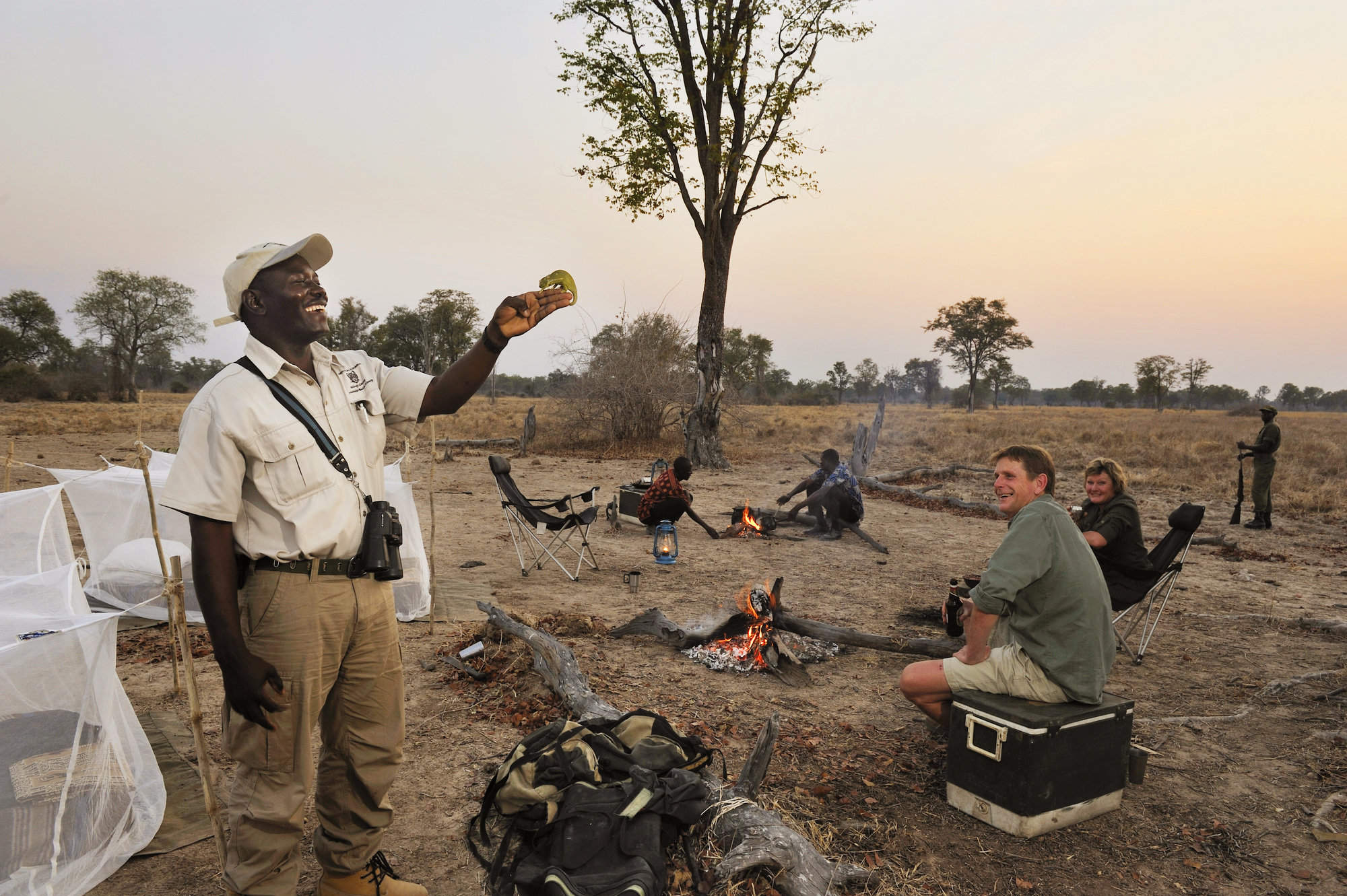
Mwamba Camp-out
The Mwamba-Camp Out allows you to have an incredibly adventurous night in the bush, sleeping under mosquito nets with activities led by some of the best guides in Zambia.
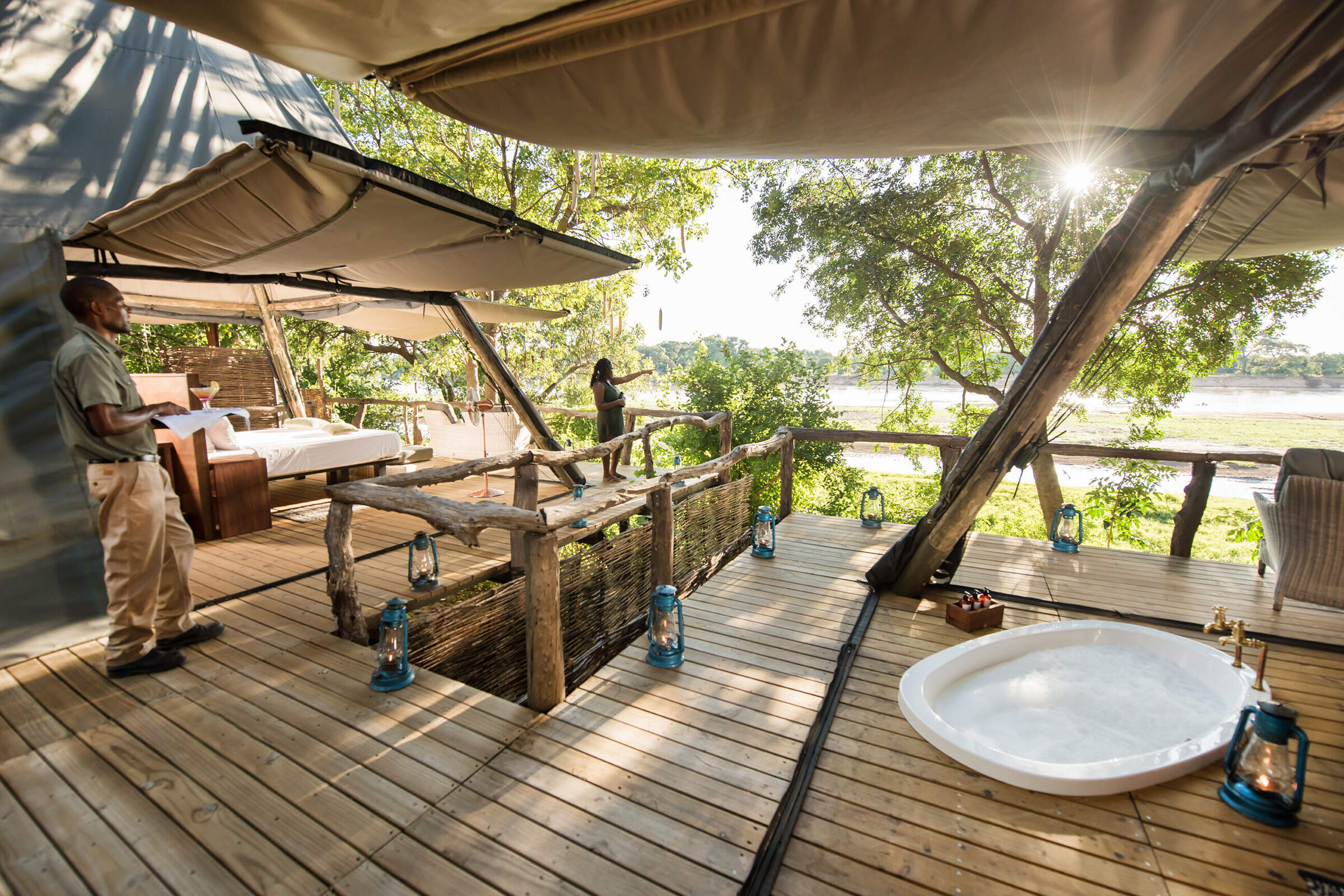
Shawa Luangwa
Opened in June 2021, Shawa Luangwa Camp is a small, intimate and rustic camp, with a good location in a remote section of the South Luangwa National Park.
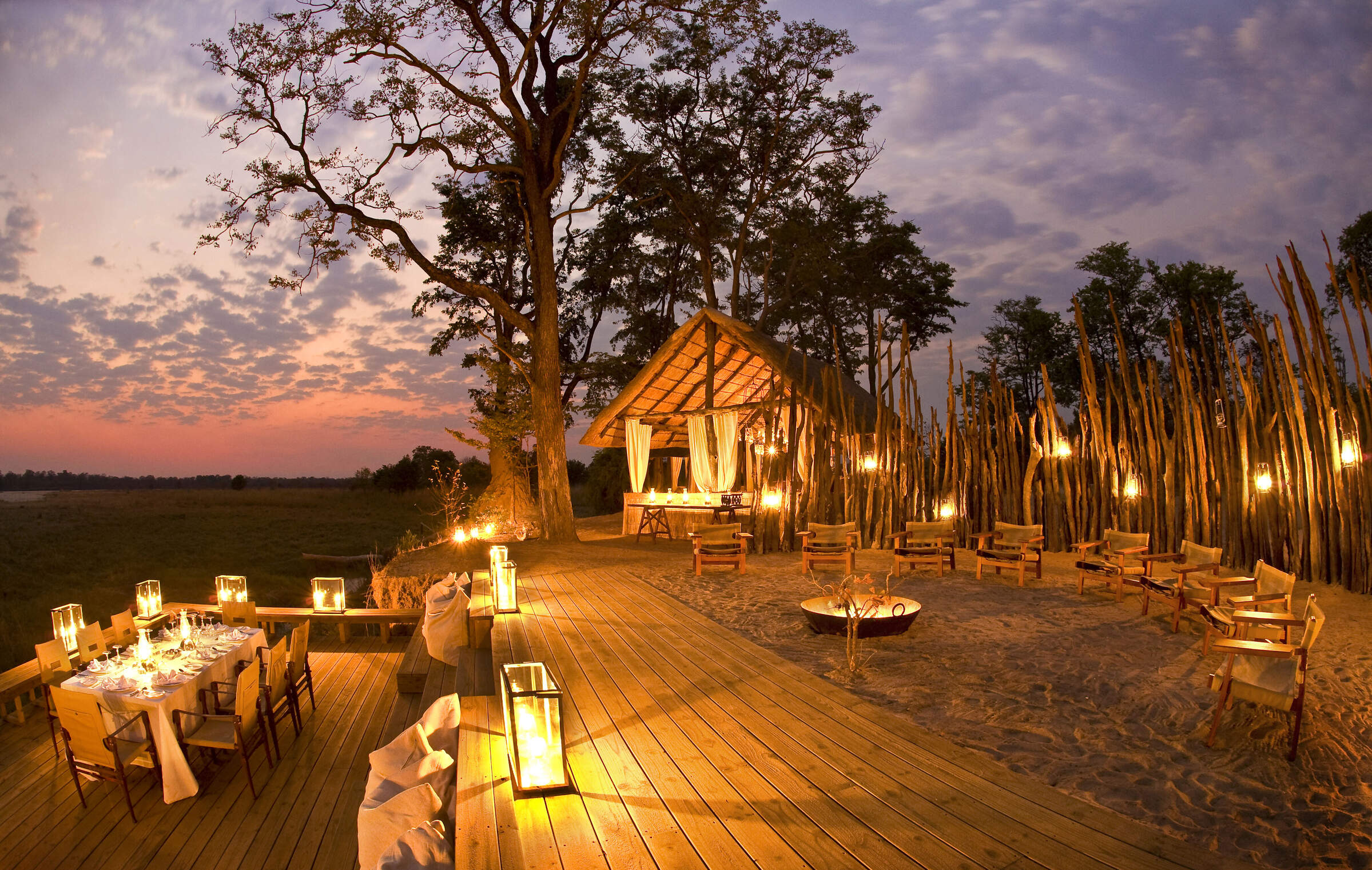
Zungulila
Zungulila is a small, comfortable tented bushcamp with an emphasis on walking safaris, in the remote southern section of the South Luangwa.
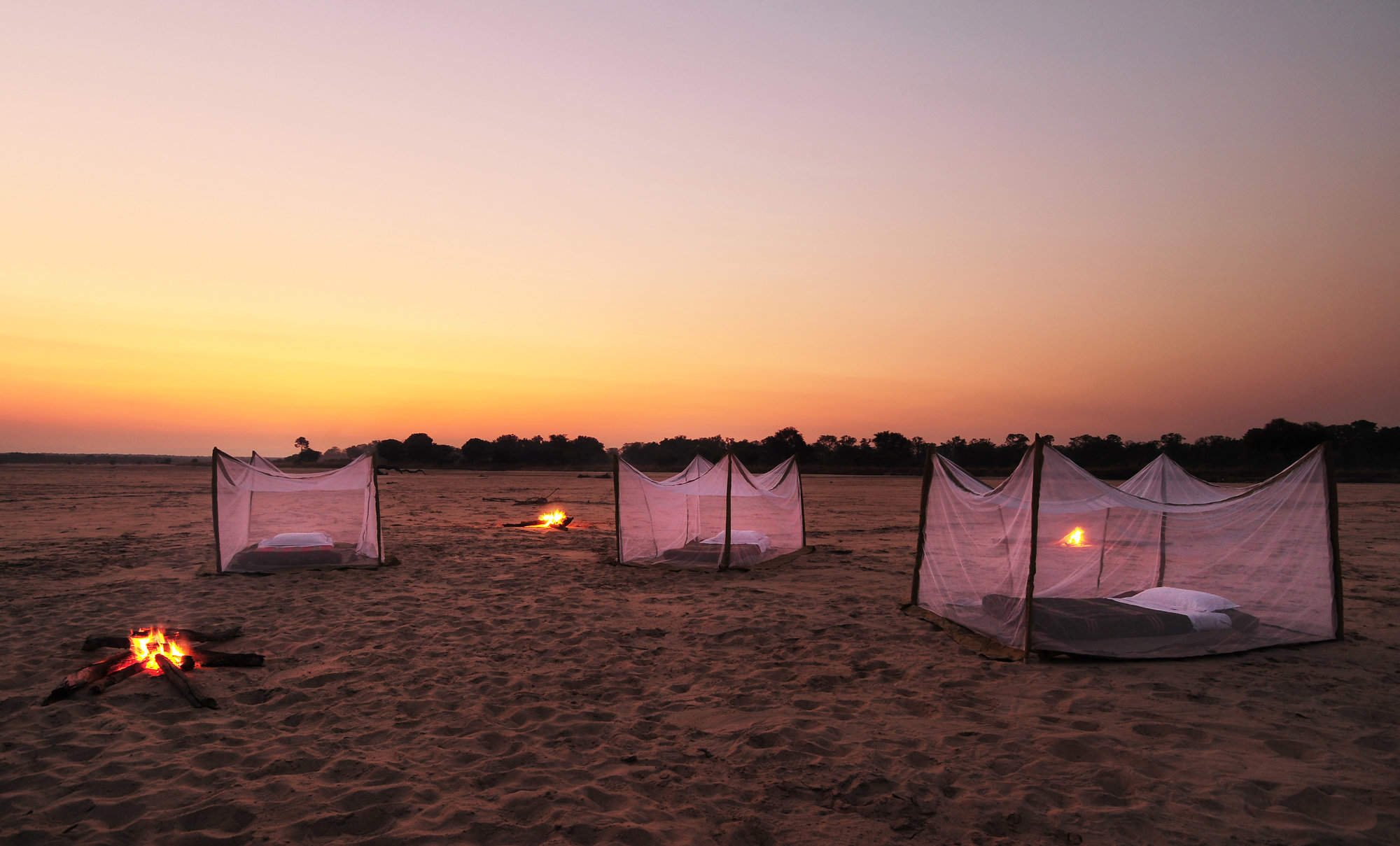
Luwi Riverbed Sleepout
For an adventurous night in South Luangwa National Park, come and sleep out in the bush, around a campfire, with an experienced guide and game scout.
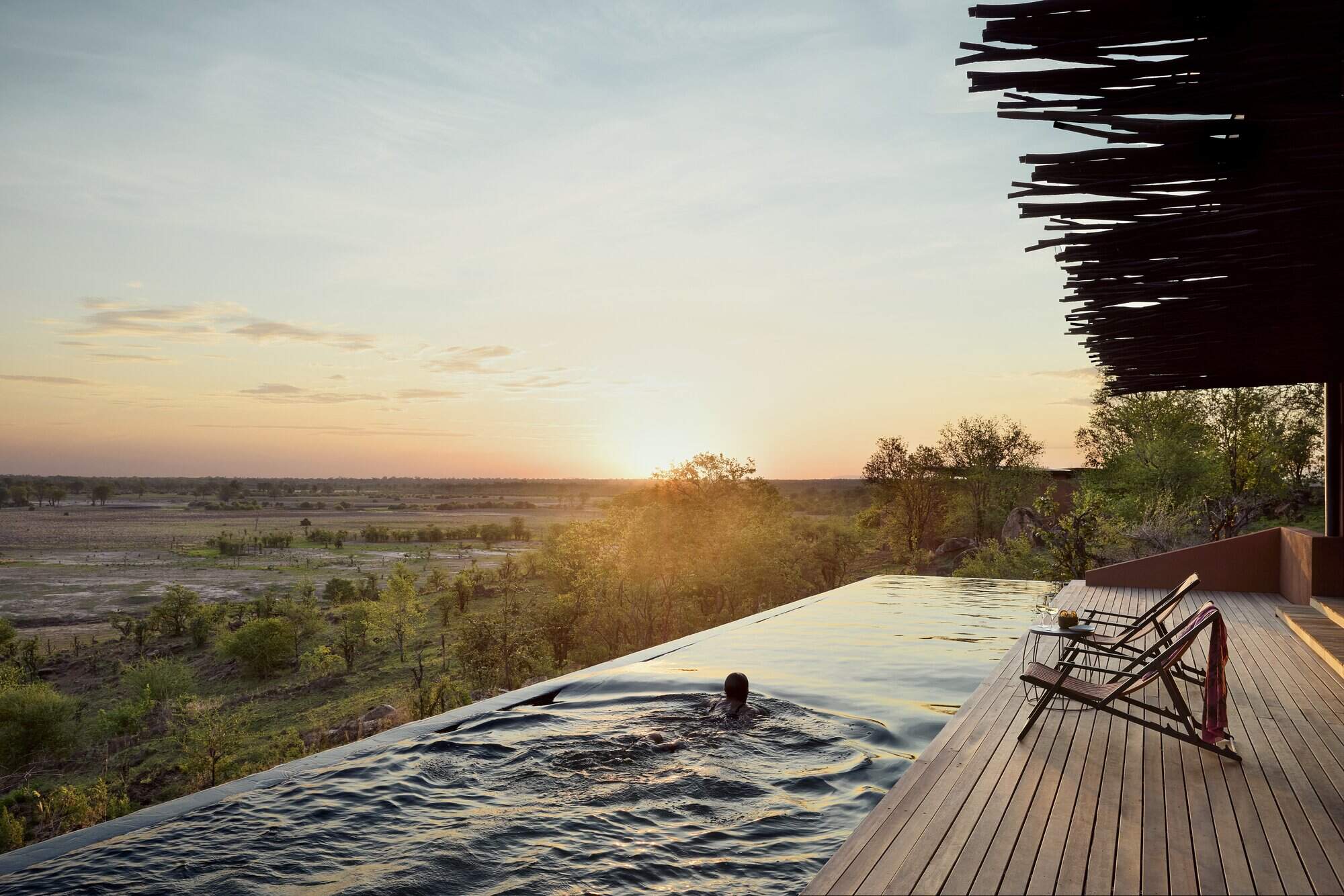
Chichele Lodge
Currently in the final stages of an extensive rebuild, Chichele Presidential Lodge stands high within the park, with superb views, and is due to reopen in early 2025.

Nkonzi Camp
A simple and rustic bush camp, Nkonzi has a strong focus on walking safaris in this remote section of Zambia’s South Luangwa National Park.

Chikunto
Chikunto Safari Lodge is a more traditional property in the South Luangwa National Park, sitting on a peninsula of land created by the meandering Luangwa River.
When to go to South Luangwa National Park
Our month by month guide: What it's like to visit Nsefu in South Luangwa National Park
Jan
Feb
Mar
Apr
May
Jun
Jul
Aug
Sep
Oct
Nov
Dec
South Luangwa National Park in January
January marks the height of the wet season in South Luangwa. Expect frequent downpours, often lasting a few hours, with intermittent sunny periods. The mercury regularly climbs above 30°C, accompanied by high humidity. The park's landscape is verdant and lush, with crystal-clear air.
However, the abundance of water causes most larger animals to disperse, and the thick vegetation can hinder game viewing. Walking safaris are largely impractical during this time. Migratory birds, many in breeding plumage, boost the area's avian diversity. Most lodges close and the few that remain open offer their lowest rates. Only the central network of all-weather roads is reliably passable for 4WD safaris. Low numbers of visitors ensuring a tranquil park experience for those who do visit.
- Wet season peak, frequent showers
- Most lodges and all bush-camps are closed
- Lush vegetation, ideal for photography
- Large wildlife is scattered, can be challenging to spot
- Few tourists, budget-friendly rates
Our view
This is not a great time to visit
Weather in January
South Luangwa National Park in February
February continues the ‘green season’ trend in South Luangwa National Park, with impressive thunderstorms delivering short bursts of rain most days, punctuated by clear skies. The park remains awash with water, affecting wildlife distribution and lodge operations.
Dense vegetation limits game viewing opportunities on safari and walking safaris aren’t usually possible. However, the swollen Luangwa River allows for unique boating experiences unavailable during drier months. Despite challenging conditions, patient visitors may be rewarded with sightings of animals caring for their young. The handful of operational lodges maintain low rates, and the park sees few visitors during this period.
- Continued wet season, regular downpours
- All bush-camps and most lodges are closed
- Verdant scenery, photogenic landscapes
- Game viewing challenging due to thick foliage
- Low visitor numbers, economical pricing
Our view
This is not a great time to visit
Weather in February
South Luangwa National Park in March
March signals the tail end of South Luangwa's rainy season, with heavy showers still frequent. Water levels peak, so driving off the park’s all-weather road network remains challenging. Daytime temperatures consistently exceed 30°C, with rain-induced humidity remaining high.
Most lodges are still closed, and thick vegetation continues to impact game viewing and walking safaris. However, this period can offer exceptional sightings of animals with their offspring, and predator activity often increases. Wild dogs have historically been particularly active in the park during this time. The combination of clear air and increasingly blue skies provides excellent photographic opportunities. Birdwatching remains superb as migratory species prepare for their winter journey.
- Wet season persists, intermittent rain
- Many lodges remain closed
- Abundant greenery, picturesque settings
- Young animals plentiful, but hard to see
- Minimal crowds, cost-effective travel
Our view
This is not a great time to visit
Weather in March
South Luangwa National Park in April
April represents a transitional period in South Luangwa National Park as the rains shift from intense downpours to lighter, less frequent showers. The park's scenery remains incredibly green and vibrant, though larger wildlife can be harder to spot on safaris.
Some lodges begin to reopen while seasonal bushcamps remain closed as they prepare for the upcoming dry season. The Luangwa River reaches often its highest level in April, creating a spectacular sight. Despite the challenges, this period can offer unique experiences for those willing to brave the unpredictable conditions – and accept a greatly reduced choice of places to stay.
- Wet season waning, occasional showers
- Some lodges begin reopening
- Landscape still lush, great for photographers
- Wildlife viewing slowly improving
- Few visitors, attractive off-season rates
Our view
This is not a great time to visit
Weather in April
South Luangwa National Park in May
May is a lovely month; it typically heralds the start of the dry season in South Luangwa. While occasional showers may occur, most days are clear and sunny. As winter approaches, temperatures begin to drop, with daytime highs around 26°C.
The drying landscape improves access within the park, and most lodges reopen. Some standing water remains, but game viewing noticeably improves as the vegetation thins out. The clear air continues to benefit photographers. Late May is very popular among the Luangwa’s ‘safari regulars’ who seek to capitalise on good weather, improved wildlife sightings, newly-opened camps (including some seasonal bush-camps) and the final weeks of low-season rates at many lodges.
- Dry season onset, clearer skies
- Most lodges and some bush-camps operational
- Vegetation still green, crisp air
- Game viewing conditions improving
- Last month for lower accommodation prices
Our view
A good time to visit, with pros & cons
Weather in May
South Luangwa National Park in June
June in South Luangwa National Park is characterised by virtually rainless days and abundant sunshine. Humidity levels plummet, and winter's approach brings cooler temperatures, with nighttime lows around 10°C and daytime highs of 25°C.
The landscape remains lush, but the thinning vegetation significantly enhances visibility for game viewing, the conditions are ideal for walking safaris. All the lodges and bushcamps in the park are operational by early June. While some offer shoulder season rates, others are already running with high-season pricing. Wildlife begins to concentrate around water sources, setting the stage for excellent game viewing in the coming months.
- Consistently sunny, cooler nights
- All South Luangwa lodges open
- Wildlife sightings becoming more frequent
- Ideal conditions for walking safaris
- Viewing of the Victoria Falls at its best
Our view
A very good time to visit
Weather in June
South Luangwa National Park in July
As the dry season progresses in South Luangwa, July sees vegetation and grasses dying back, with water becoming increasingly scarce. Wildlife congregates around remaining water sources, most notably along the Luangwa River, leading to excellent game viewing opportunities.
July marks the heart of winter, with daytime temperatures in the 20s Celsius, whilst nighttime lows can drop to single digits. Early morning and late evening game drives can be particularly chilly, with lodges often providing blankets and hot water bottles. Bring your hats, coats and gloves! Visitor numbers rise significantly, and space at popular small camps can become limited. Nearly all properties now charge their highest rates.
- Warm days, chilly evenings
- Game viewing notably improved
- Excellent visibility for walking safaris
- High season prices for most camps and lodges
- Comfortable daytime temperatures
Our view
A very good time to visit
Weather in July
South Luangwa National Park in August
August in the national park offers some of the year's best game viewing opportunities. South Luangwa’s vegetation has largely died back, and wildlife clusters around remaining water sources.
Rain is extremely unlikely, with sunny days largely guaranteed, though a haze may sometimes appear on the horizon due to dust and smoke in the air. Nighttime temperatures can dip below 5°C, but daytime highs reach the 20s Celsius. Warm clothing is essential for morning and evening drives. This is one of the most popular months to visit the park for a safari, with lodges and camps charging peak rates and often booking up far in advance.
- Very dry warm days and cold nights
- Prime wildlife viewing near water sources
- Perfect weather for walking safaris
- Peak season means highest prices
- Some haze may affect photography
Our view
Fantastic: the very best time to visit
Weather in August
South Luangwa National Park in September
September is arguably the very best time to visit South Luangwa National Park. It probably hasn’t rained for many months, humidity is low, and temperatures are just beginning to climb.
Mornings are more comfortable for 4WD safaris, rising to daytime typical highs in the low 30s Celsius. Water scarcity forces the wildlife to congregate around remaining sources, particularly around the Luangwa River, where most of the camps and lodges are situated. There high game densities lead to increased chances of inter-species interactions. It’s peak season for lodges and camps charge which are often fully booked. A little haze may affect long-distance views and photography. The Luangwa River's water levels continue to drop, concentrating hippos and crocodiles life in the remaining stretches.
- Dry and hot, clear skies
- Exceptional month for wildlife observation
- Landscape sometimes hazy due to dust and smoke
- Peak season, lodges often fully booked
- Higher prices for accommodation
Our view
Fantastic: the very best time to visit
Weather in September
South Luangwa National Park in October
October sees the dry season peak in South Luangwa at its most intense, with the landscape increasing parched. Occasional showers may occur as the promise of rain approaches. Temperatures can soar above 40°C during the day, rarely dropping below 20°C at night.
This heat can be draining, so walking safaris will set off early in the morning to beat the heat and sitting in an open 4WD on safaris can feel like facing a large hair-drier. Heat-haze and smoke may obscure the horizon as the Luangwa River becomes a series of pools, crowded with hippos and crocodiles. Other wildlife cautiously approaches these water sources, leading to thrilling predator-prey interactions. Game viewing is at its absolute best with the best chance of witnessing hunts.
- Optimal wildlife viewing conditions
- Very hot days and nights
- Dusty, hazy atmosphere is challenging for photos
- Some lodges start lowering their rates
- Less crowded than previous months
Our view
A very good time to visit
Weather in October
South Luangwa National Park in November
November typically witnesses the end of the dry season in South Luangwa. While the onset of rains is unpredictable, temperatures remain consistently high and humidity builds as the wet season approaches.
Early November may still be dry, but spectacular thunderstorms usually arrive, often later in the month, triggering rapid green growth when they do come – and an explosion of life from insects and smaller animals. Everything seems to come to life! When pools of water becomes more readily available away from the Luangwa River the wildlife quickly disperses. Some camps and all the seasonal bush-camps camps close; those that remain open reduce their rates. The rains quickly clear the air of dust and smoke, improving visibility and photographic conditions.
- Unpredictable month: depends on the rains
- Hot and humid – then the set season begins
- Wildlife dispersing as vegetation thickens
- Lower accommodation rates, fewer tourists
- Improved conditions for landscape photography
Our view
A good time to visit, with pros & cons
Weather in November
South Luangwa National Park in December
December usually marks the first full month of South Luangwa's wet season. Heavy thunderstorms become frequent, interspersed with sunny intervals. Daytime temperatures often exceed 30°C, accompanied by high humidity.
The rainfall transforms the landscape, encouraging lush vegetation growth. It’s a time renewal when insects, birds and smaller wildlife abound. While the larger species of wildlife remains in the park, wildlife viewing becomes more challenging due to the thick greenery and dispersed animal populations. Many lodges and all seasonal bush-camps are now closed as access to the park’s outlying areas becomes difficult. The few lodges that remain open offer lower rates and see few visitors. The rains clear the air, restoring vibrant blue skies and crystal-clear air which delights photographers.
- Rainy season in full swing
- Most lodges closed or offering low rates
- Wildlife harder to spot in thick vegetation
- Few visitors, budget-friendly period
- Lush green scenery, very photogenic landscapes
Our view
This is not a great time to visit
Weather in December

Looking for inspiration on where to travel next?
Visit our trip chooser to explore your options and find inspiration for your perfect African adventure
Inspire me